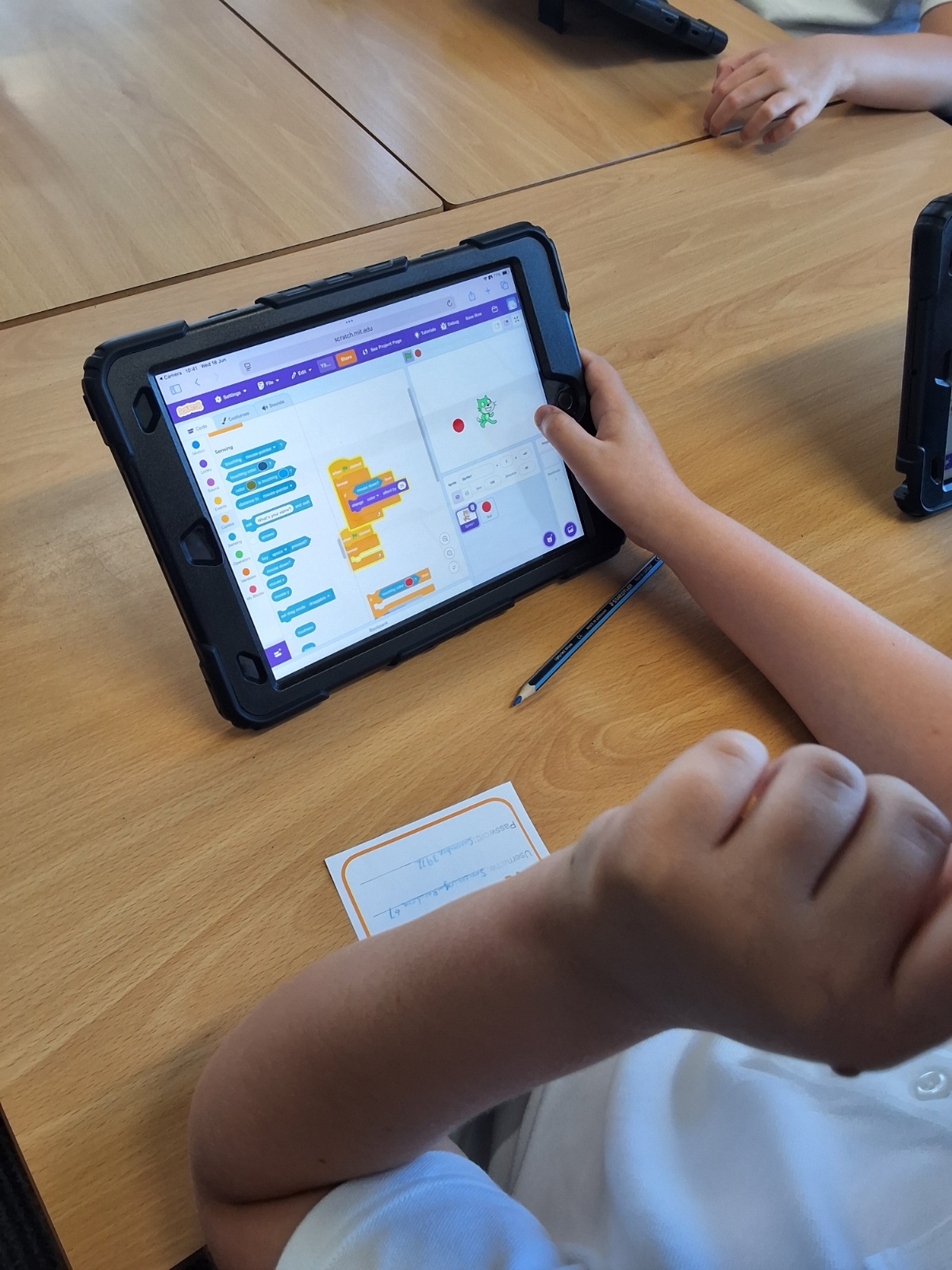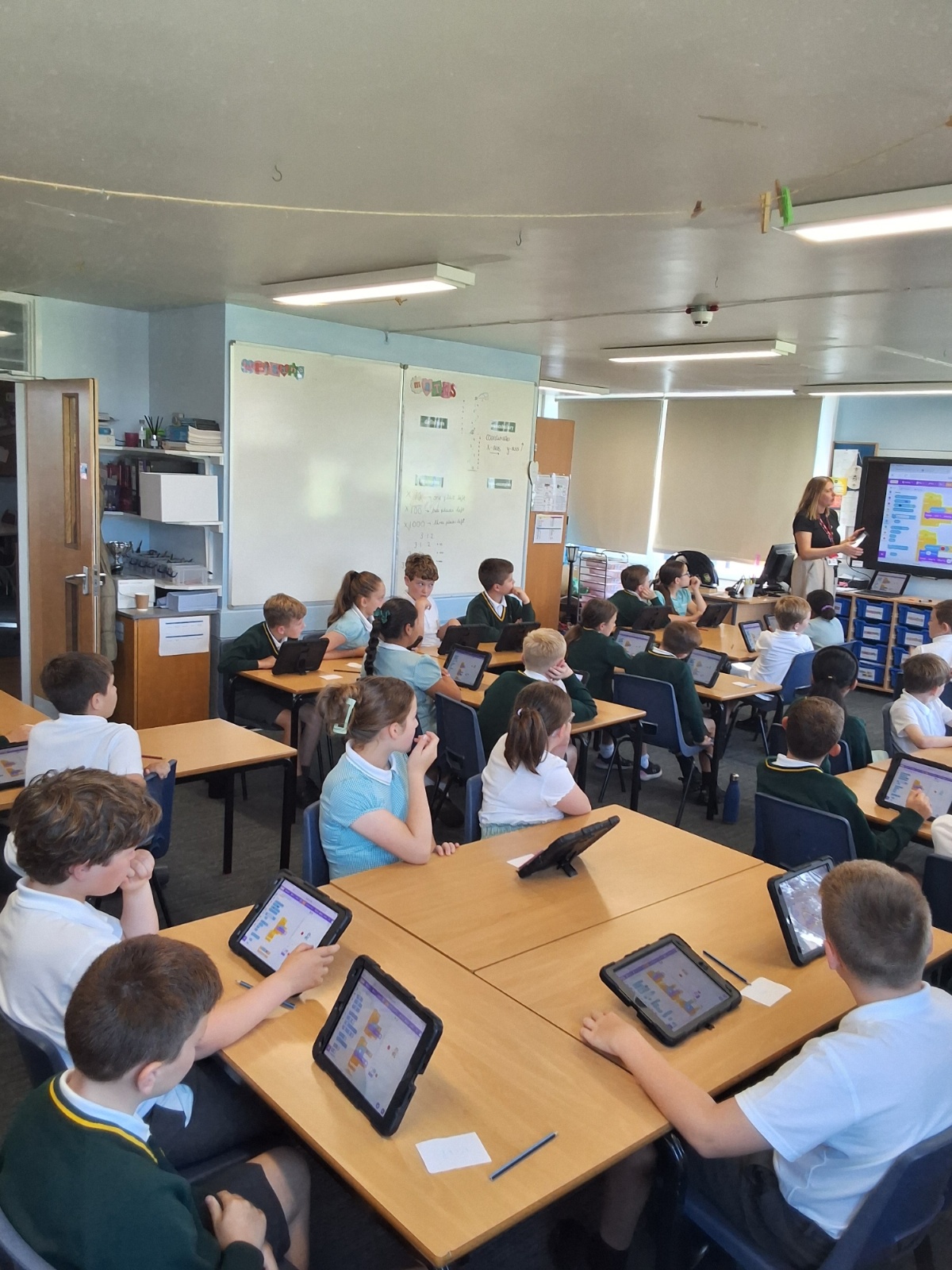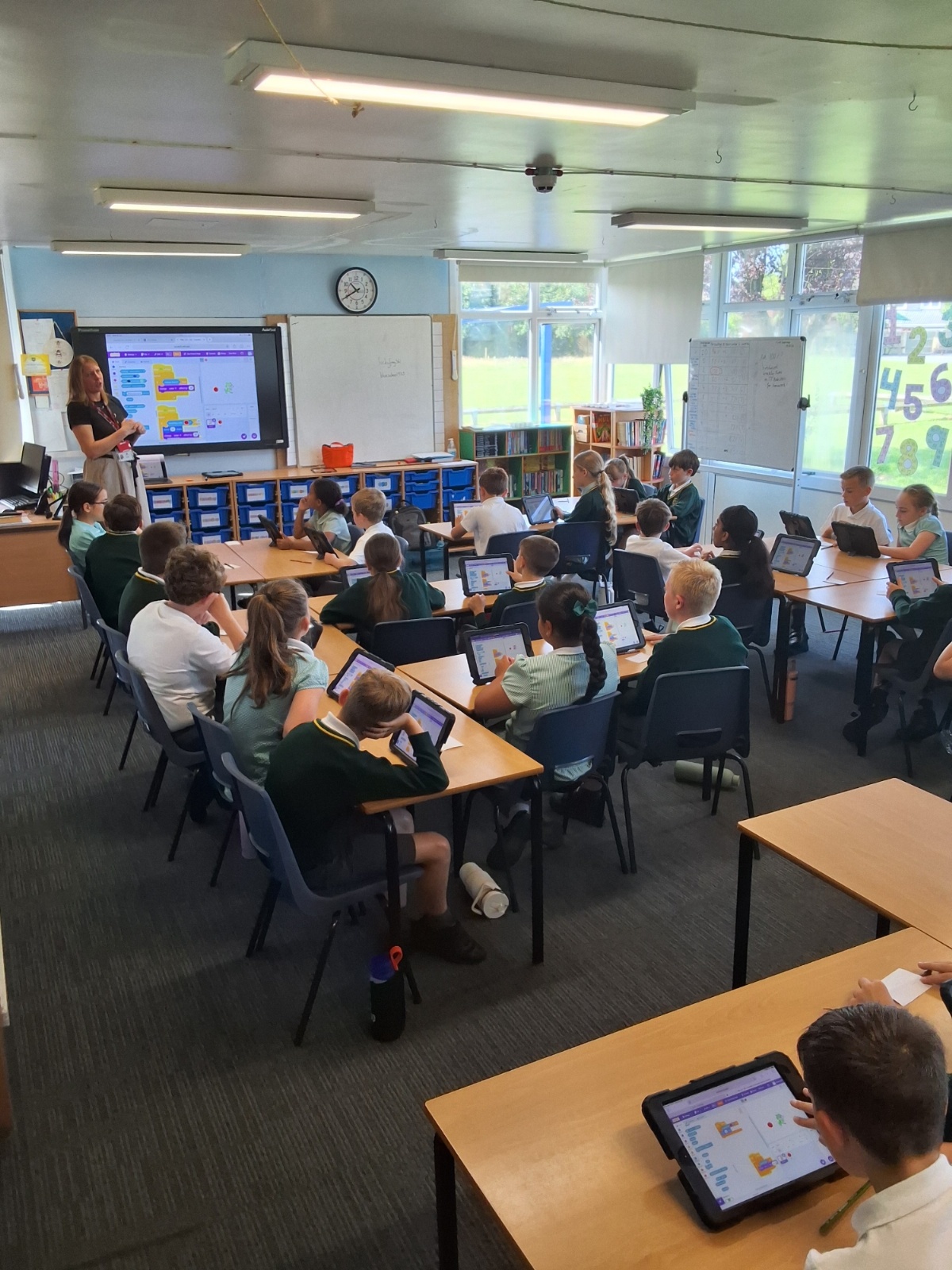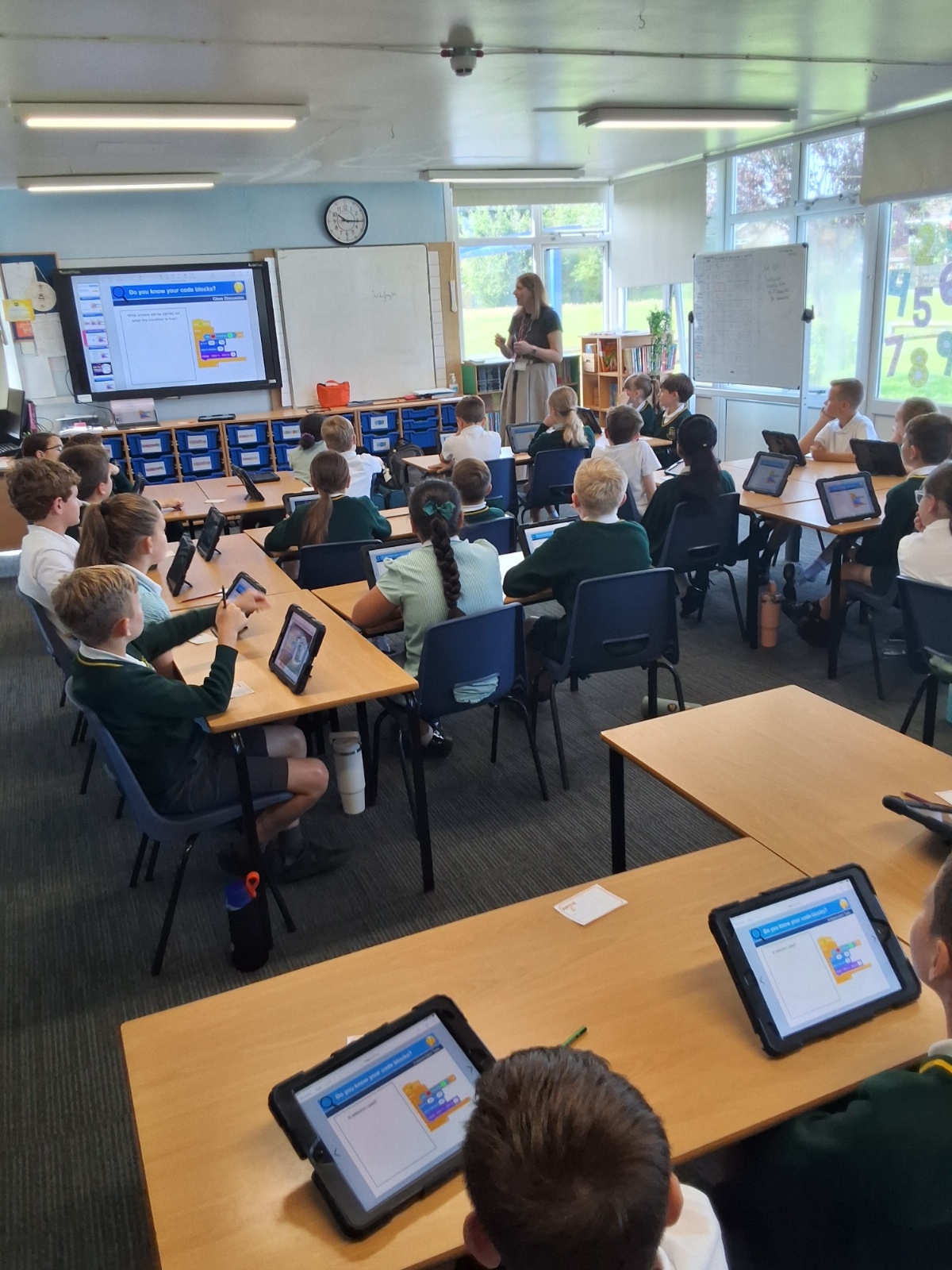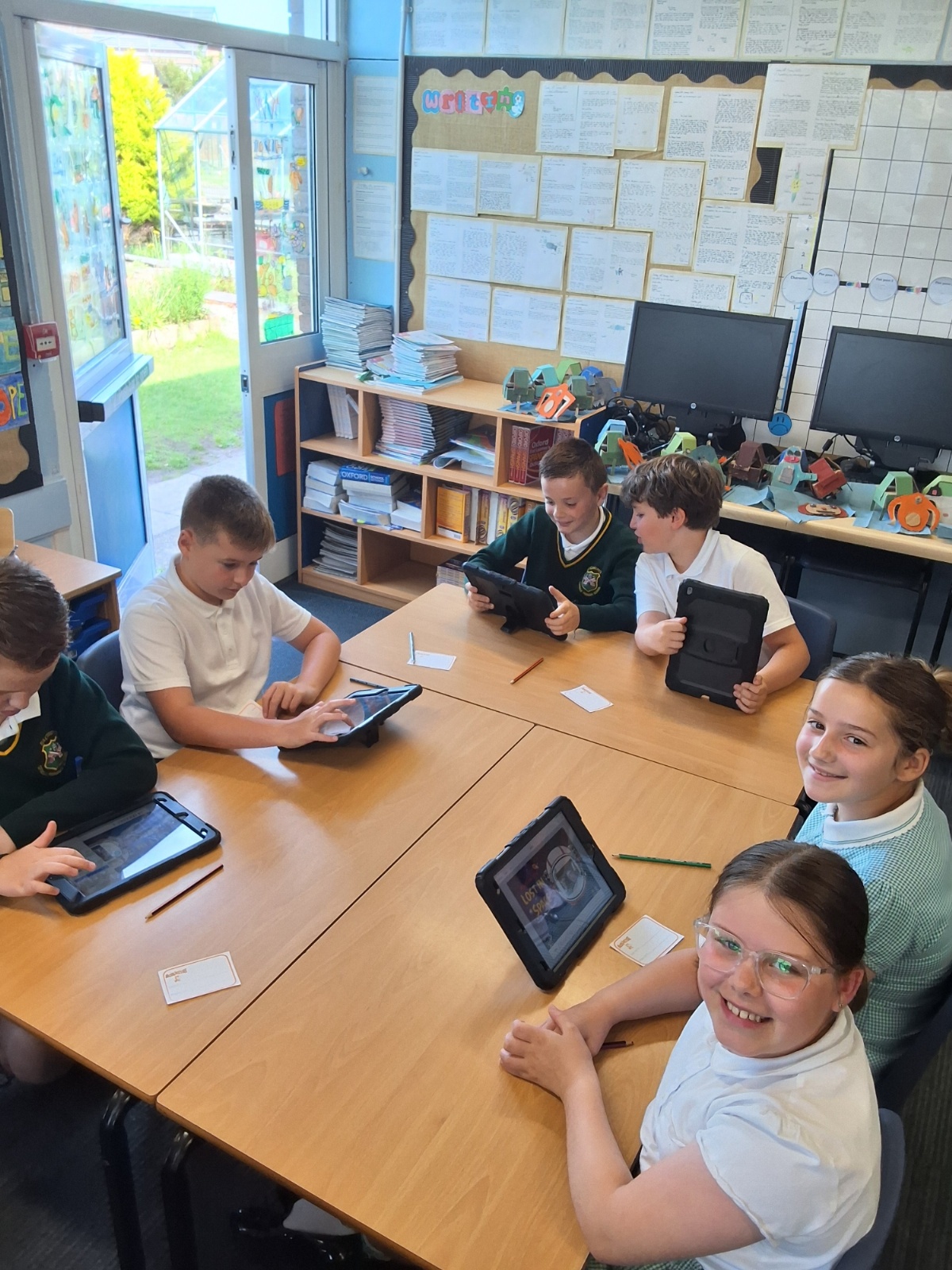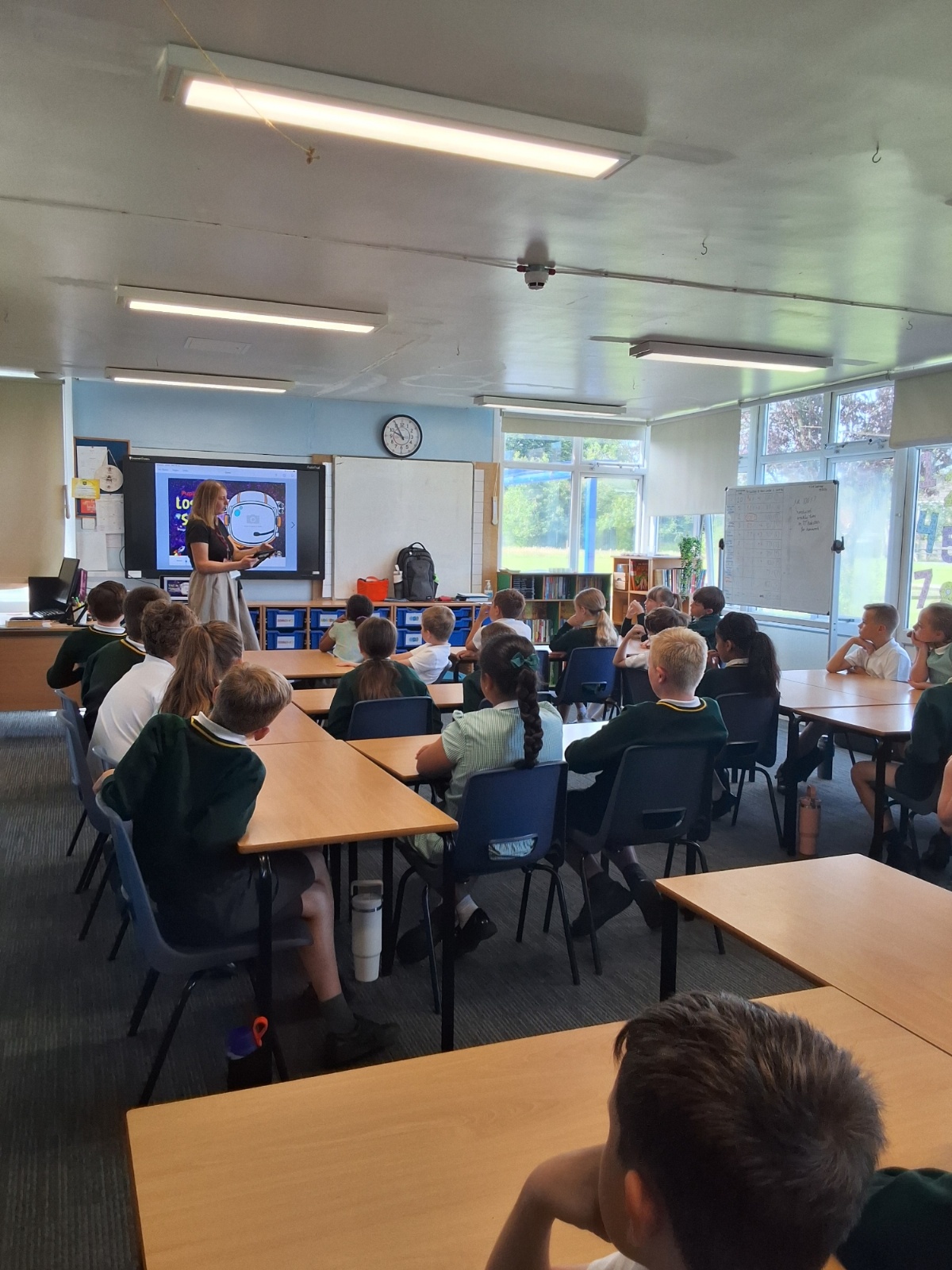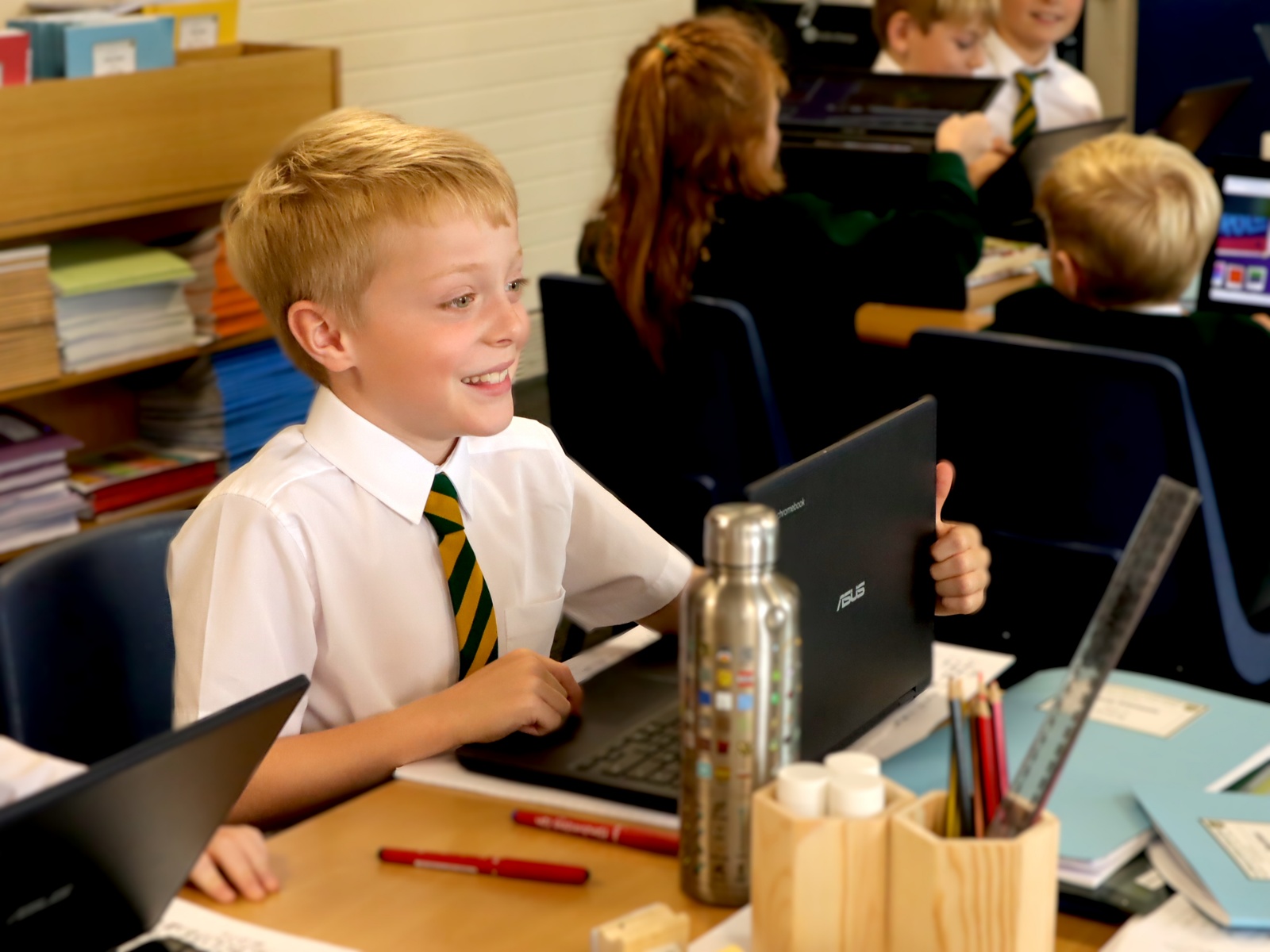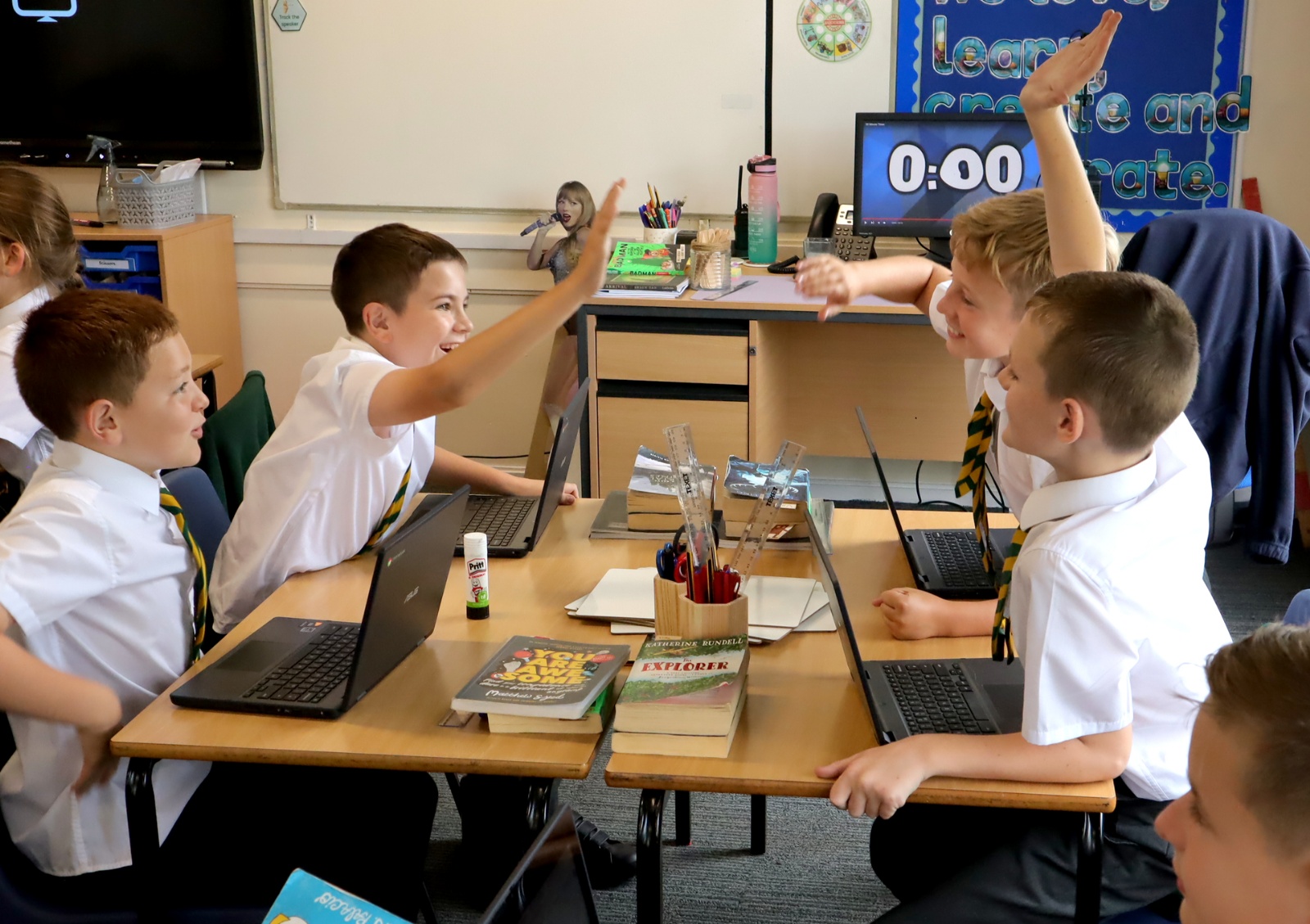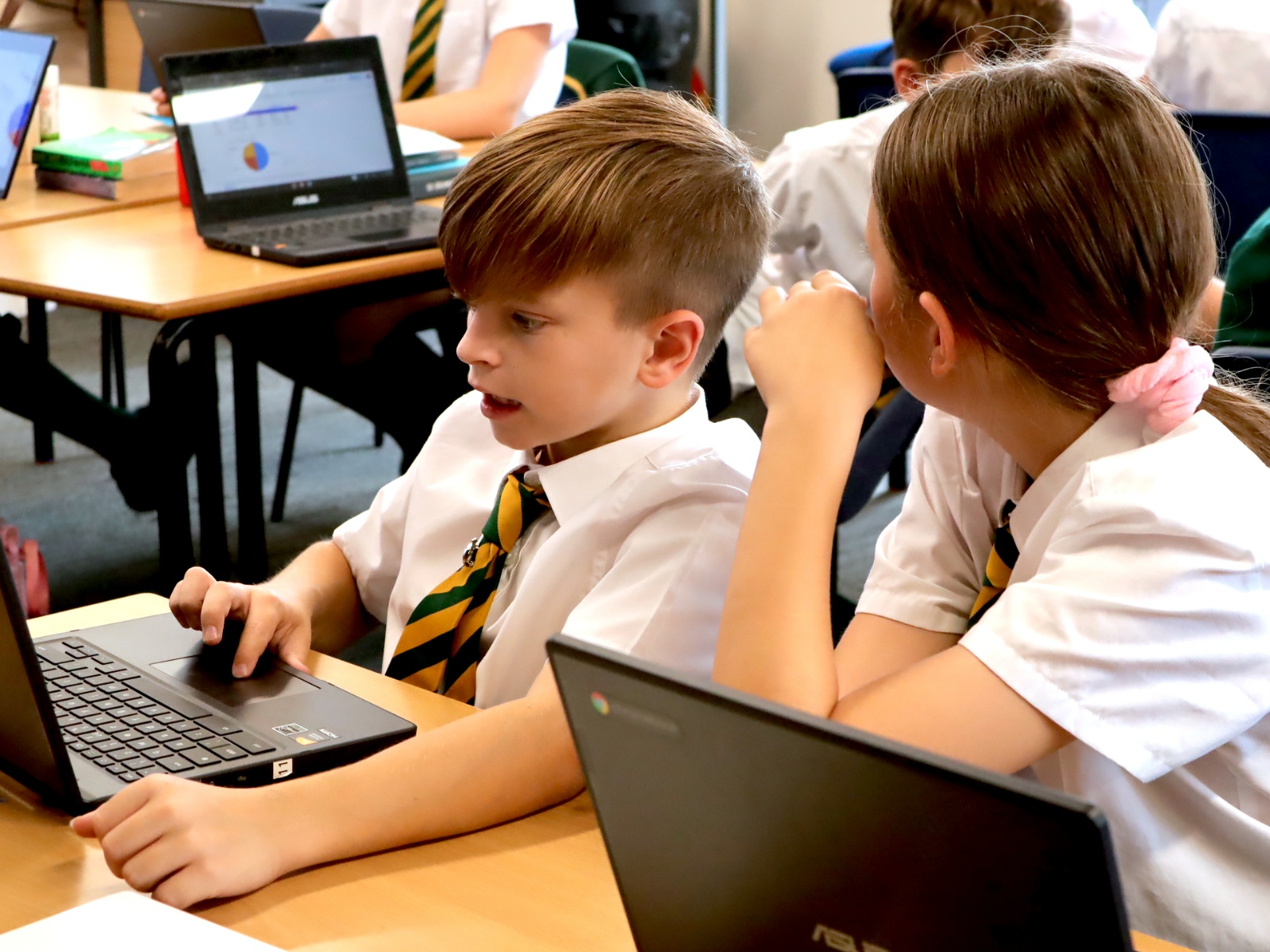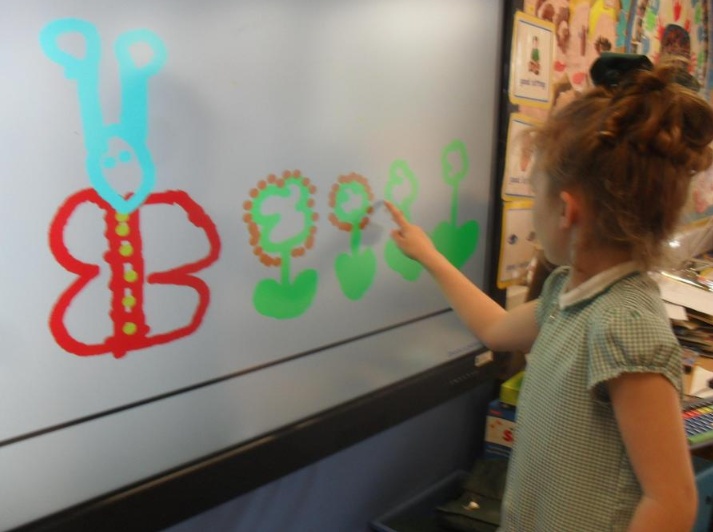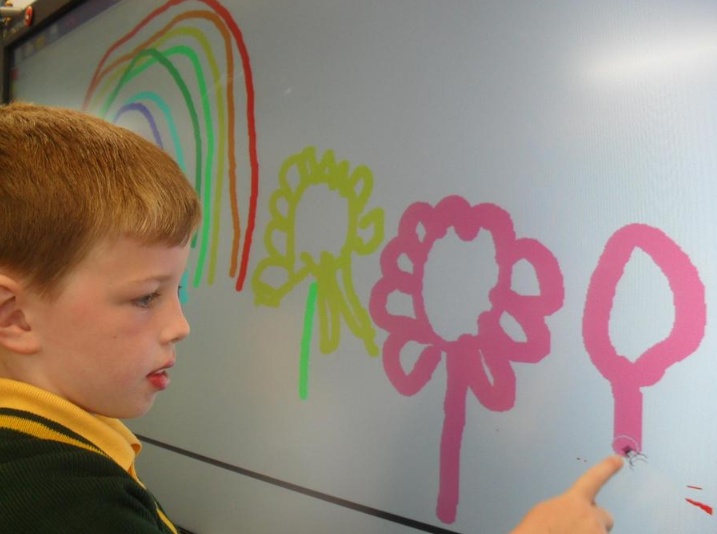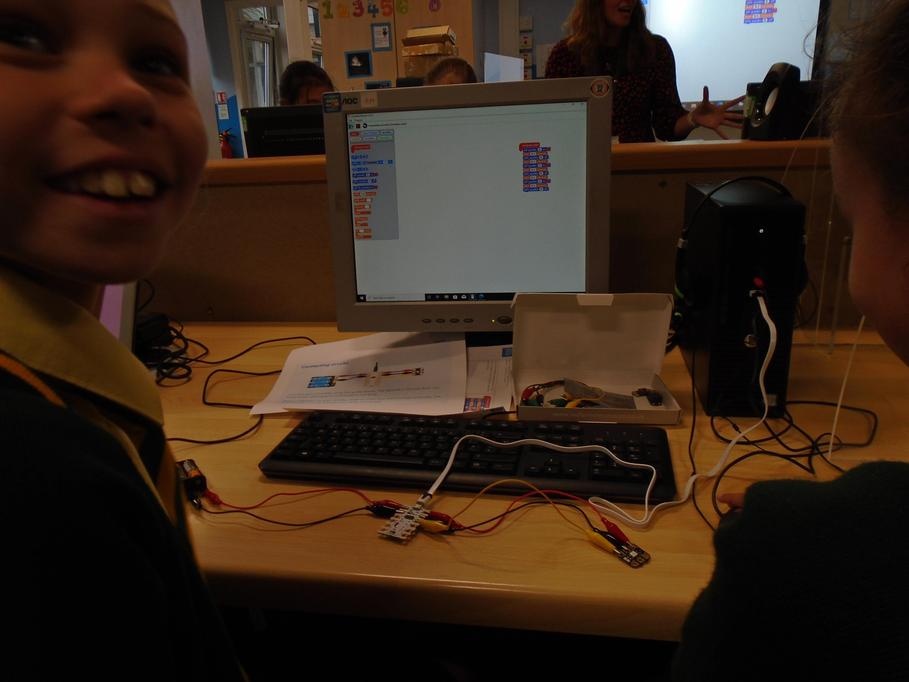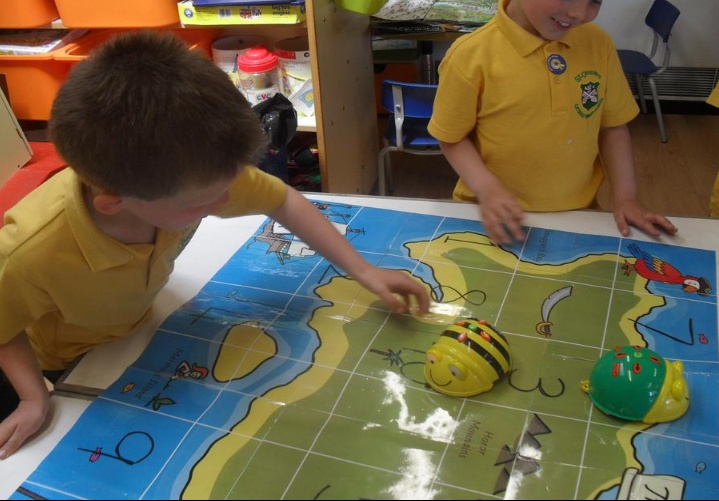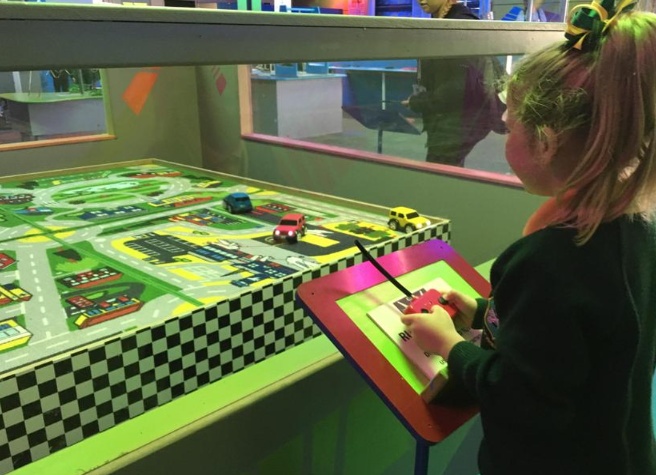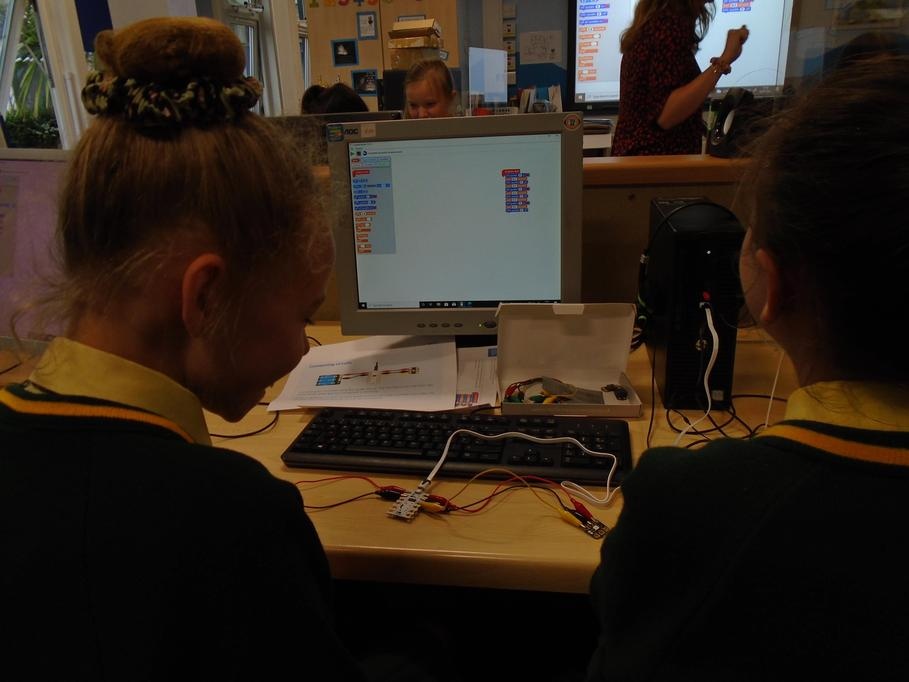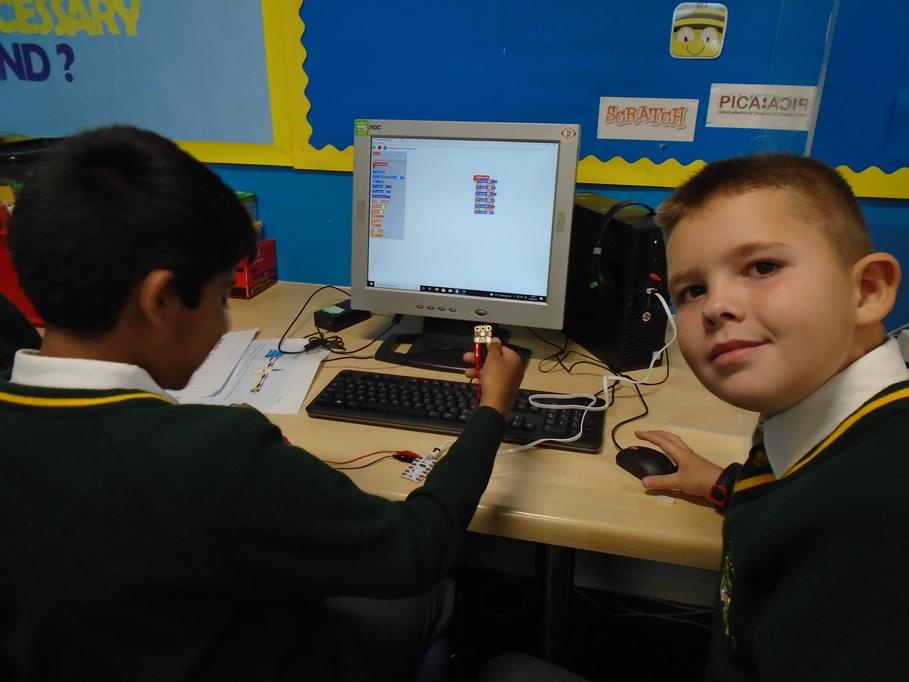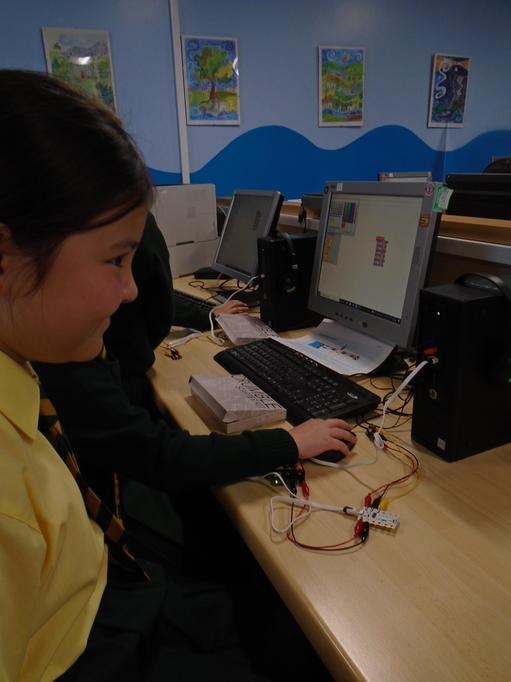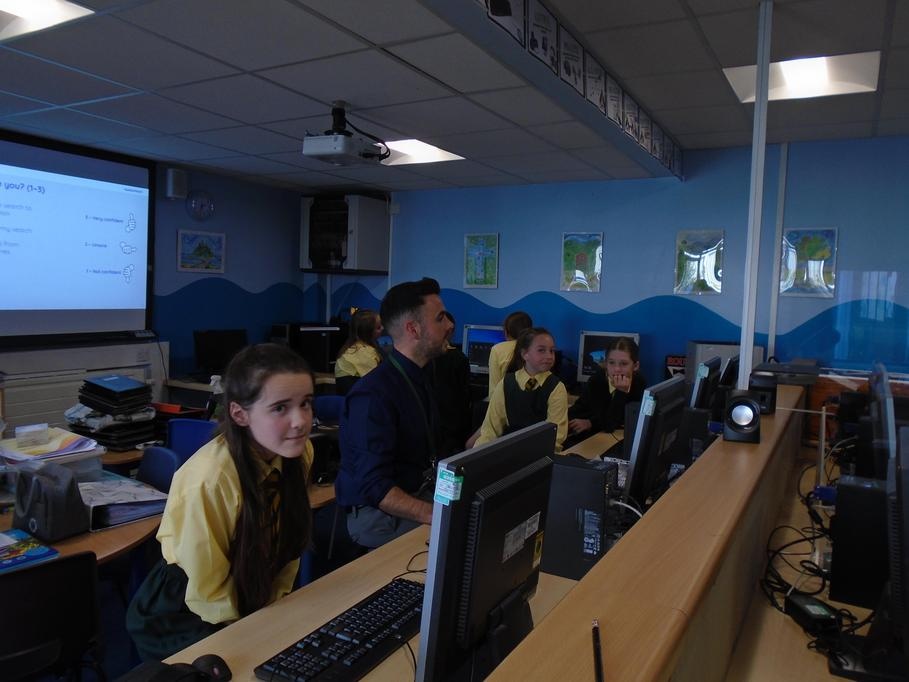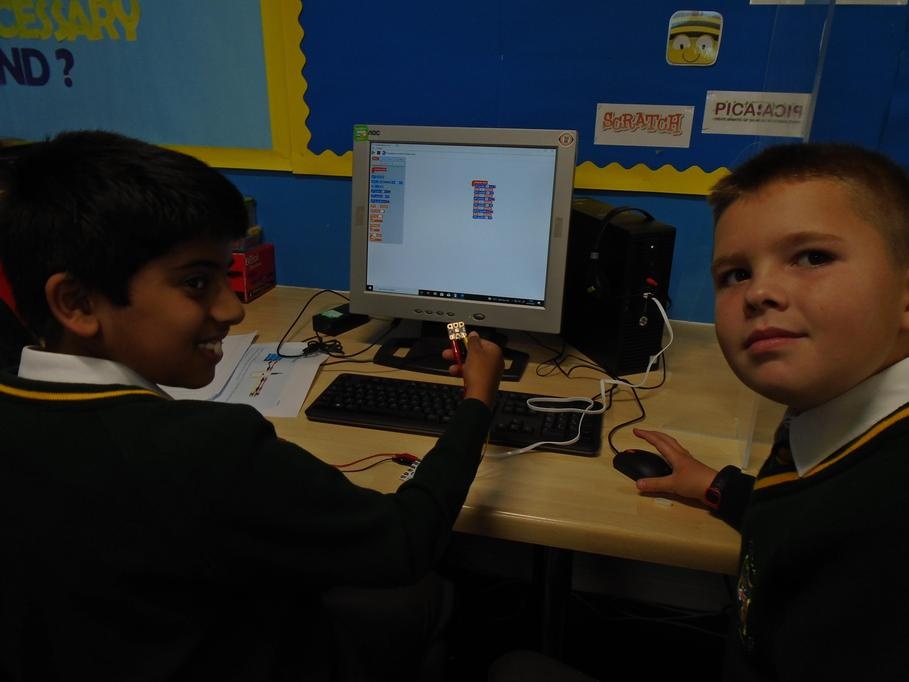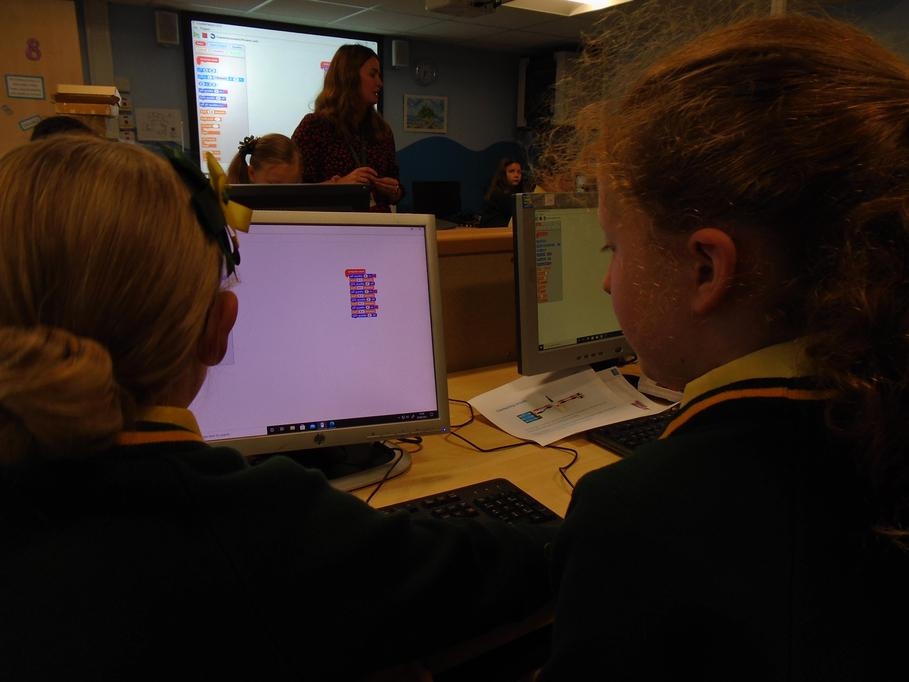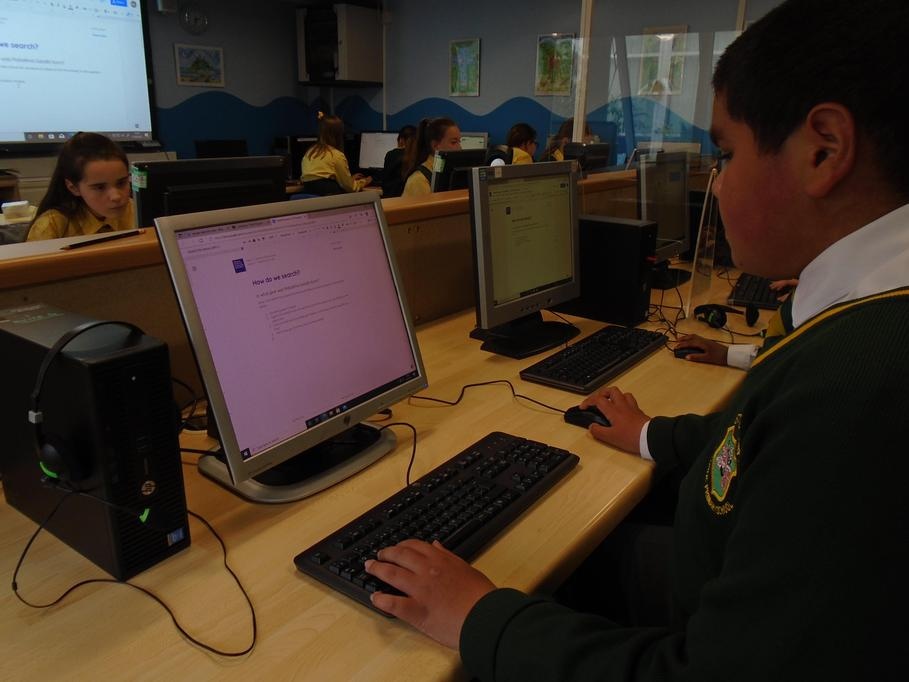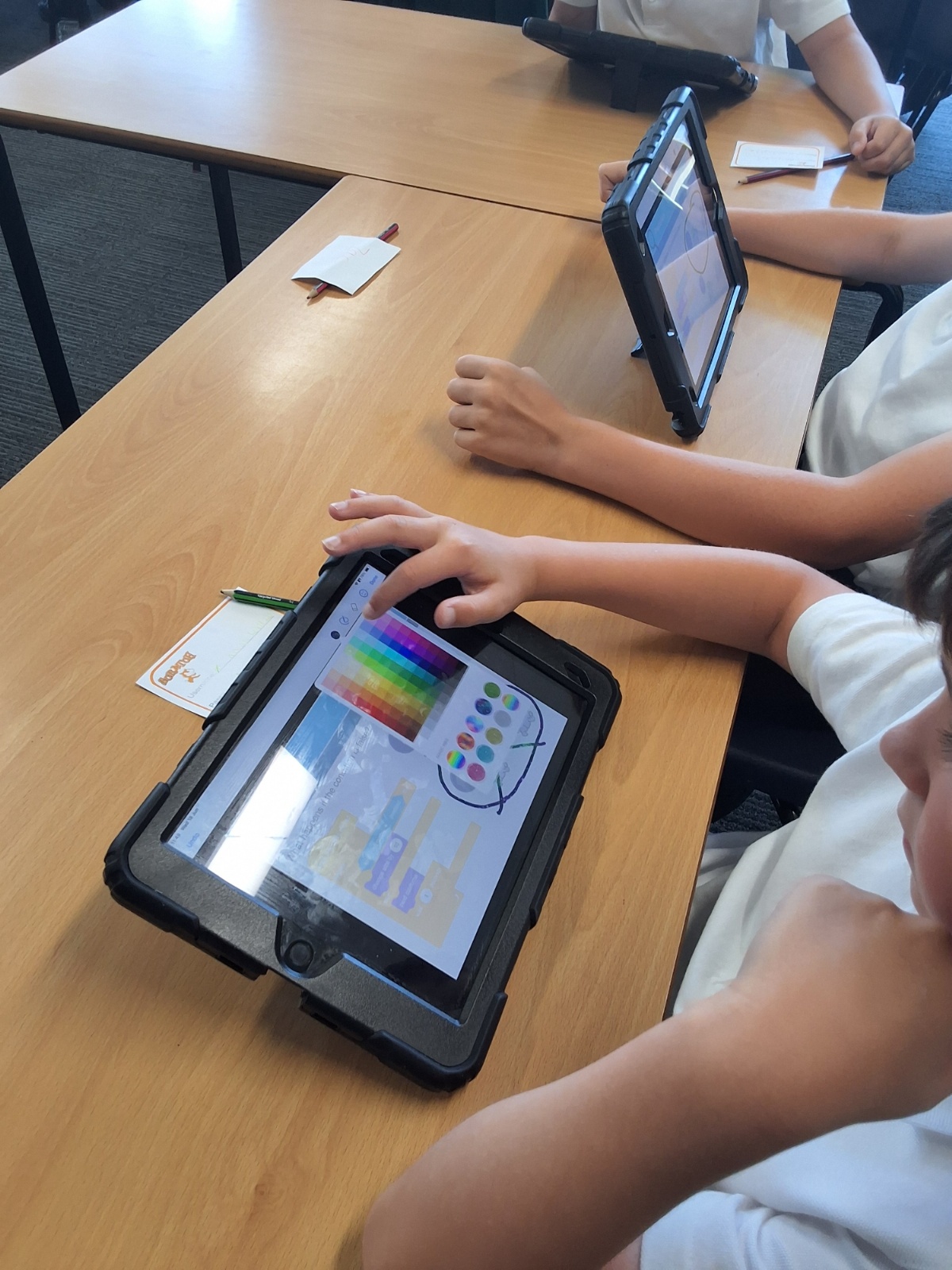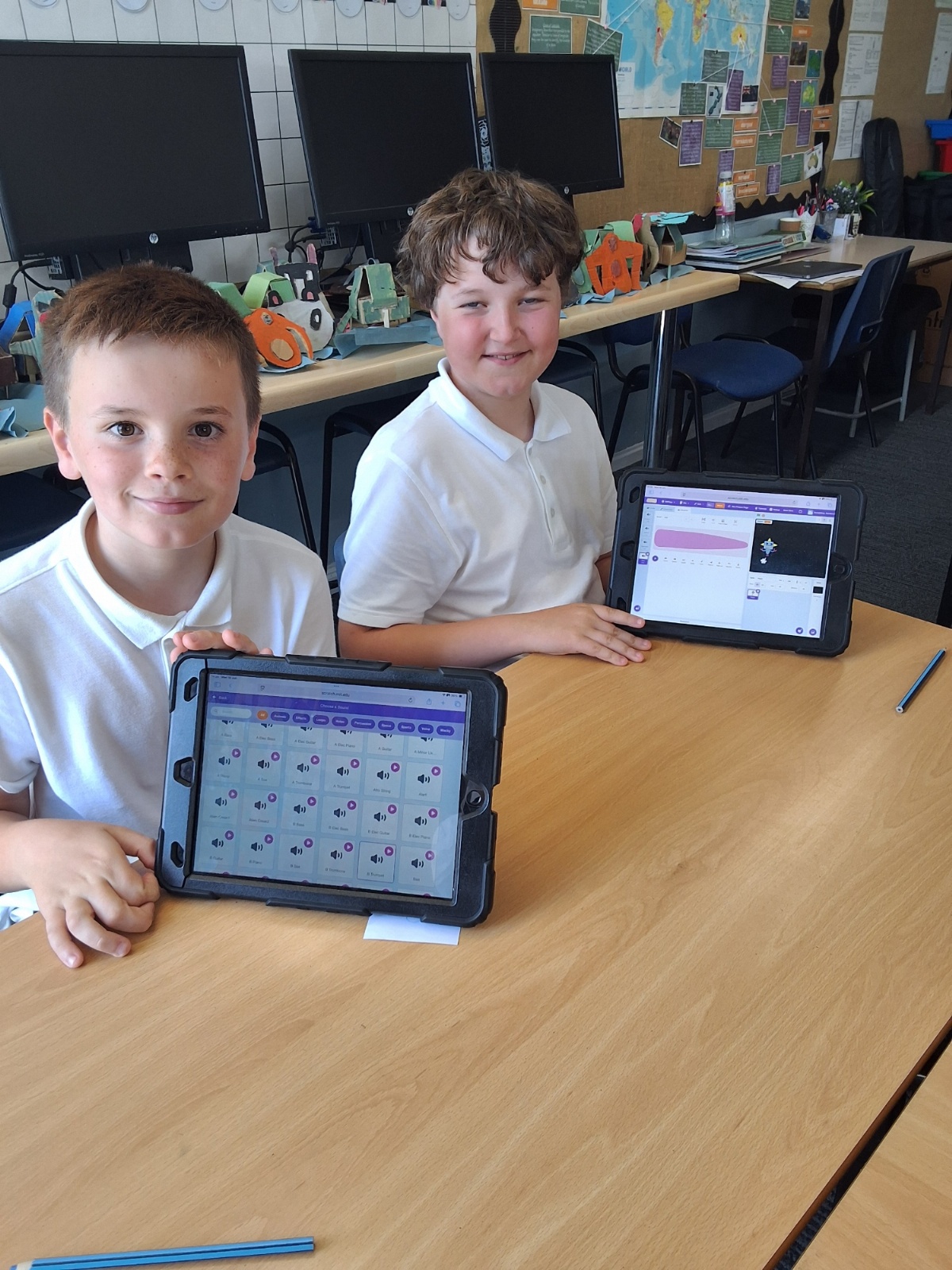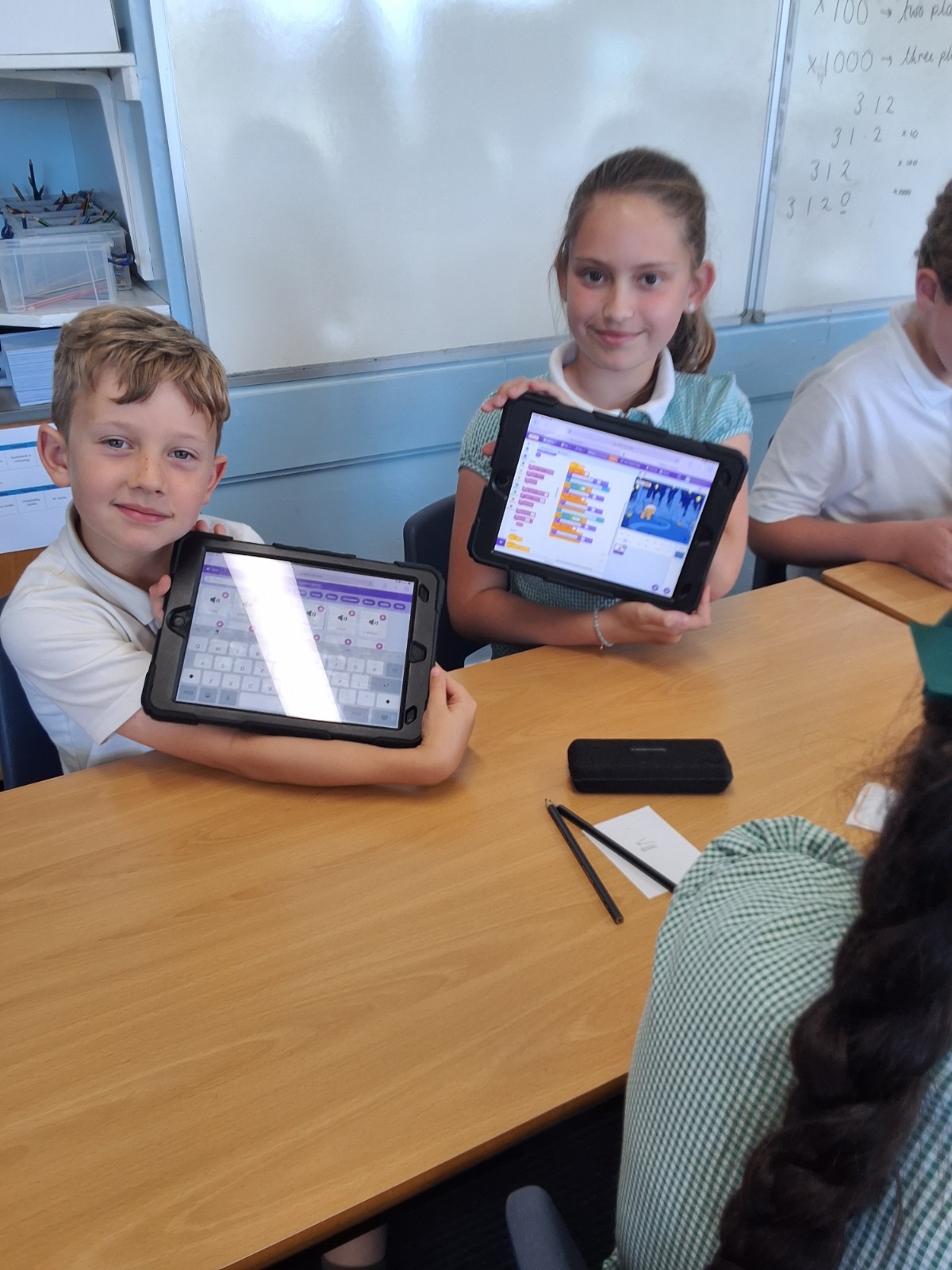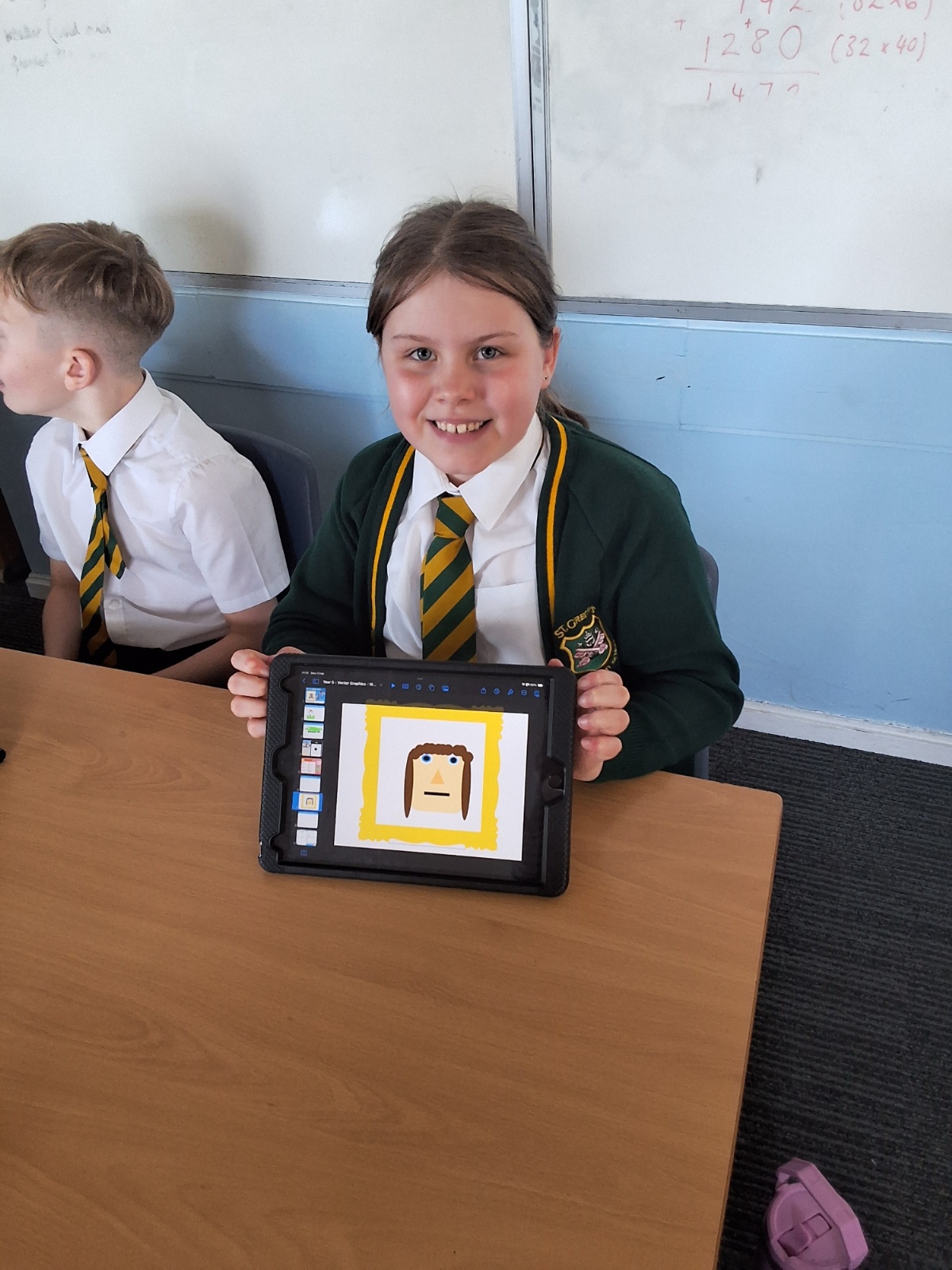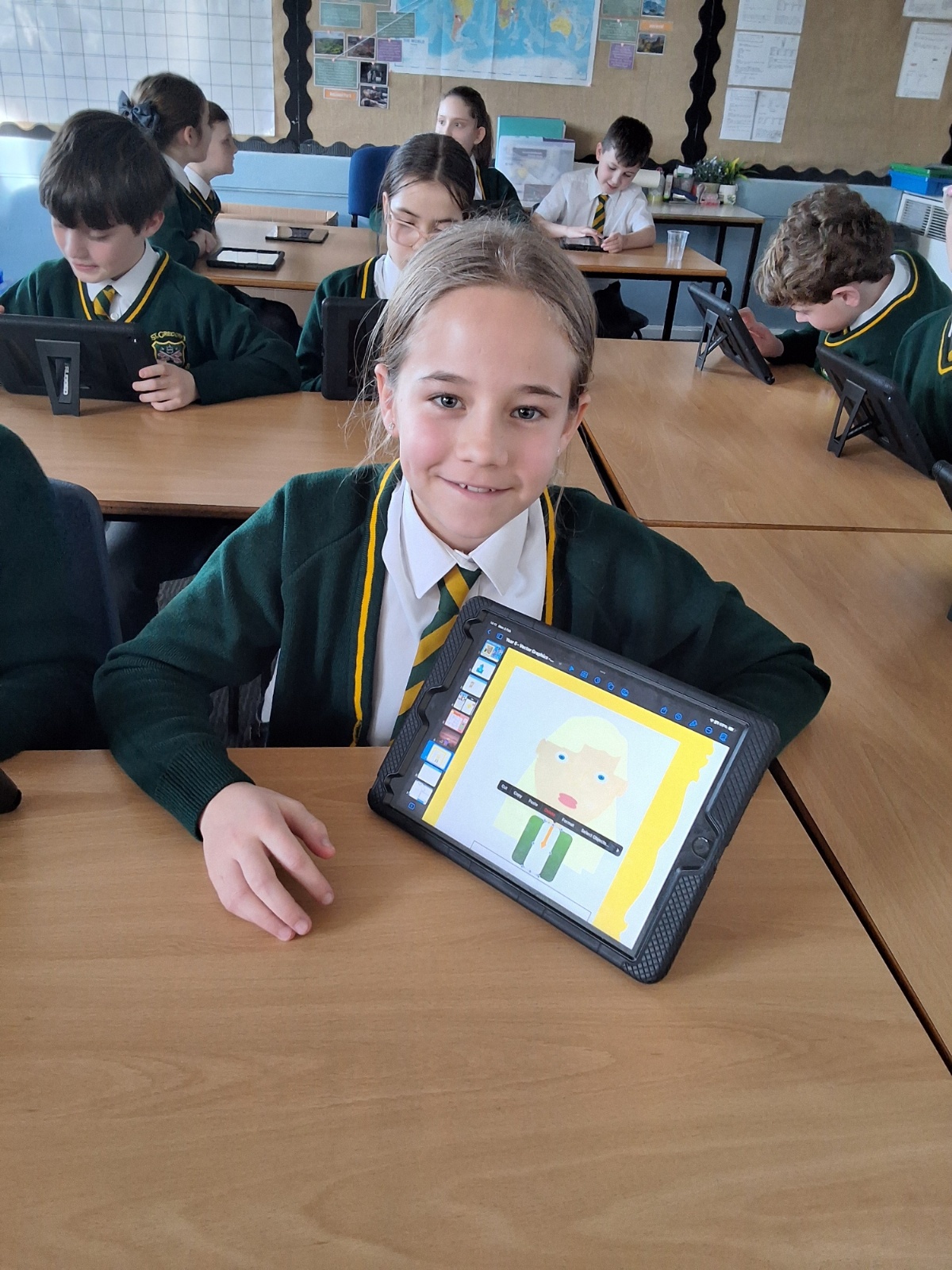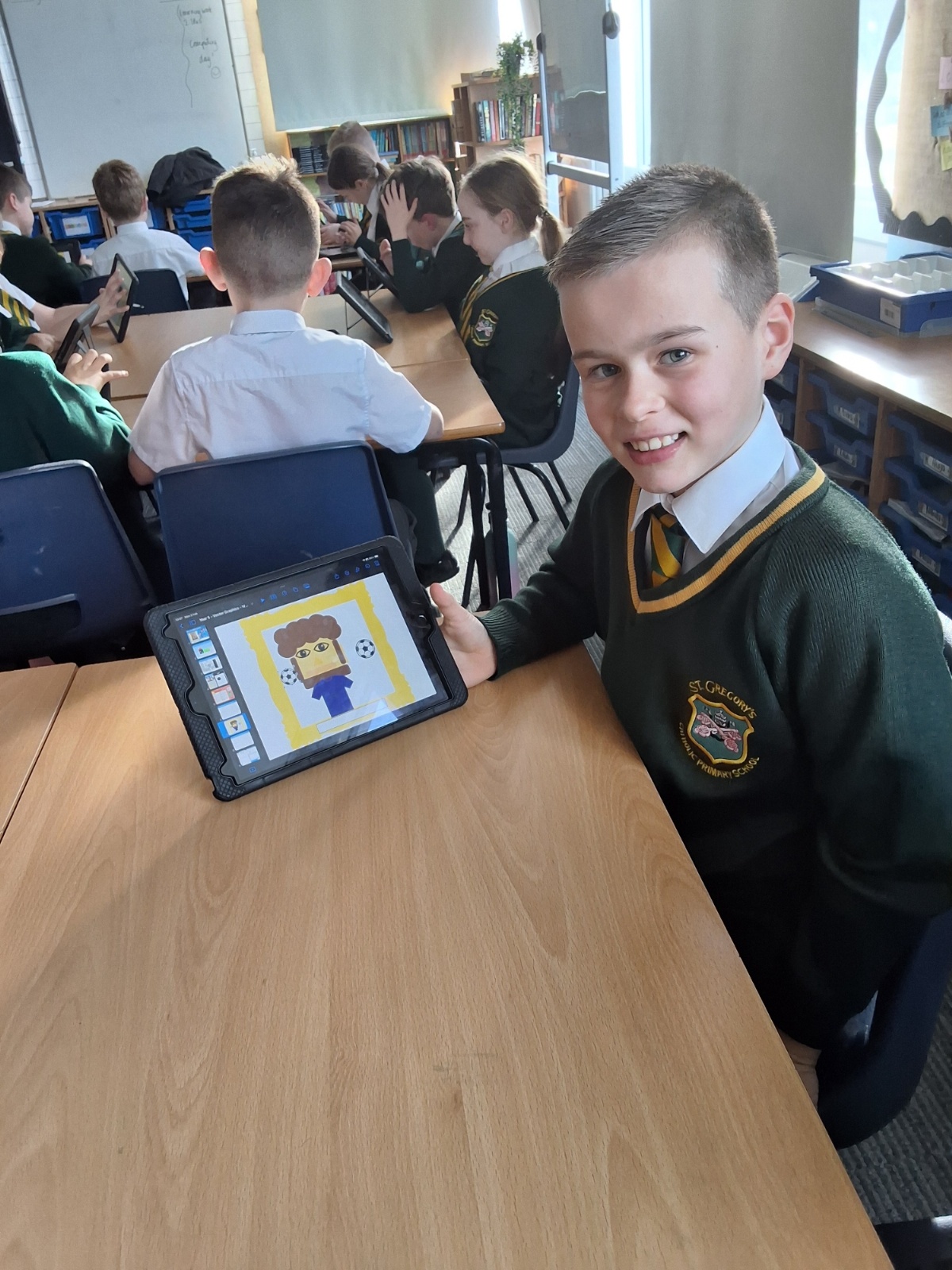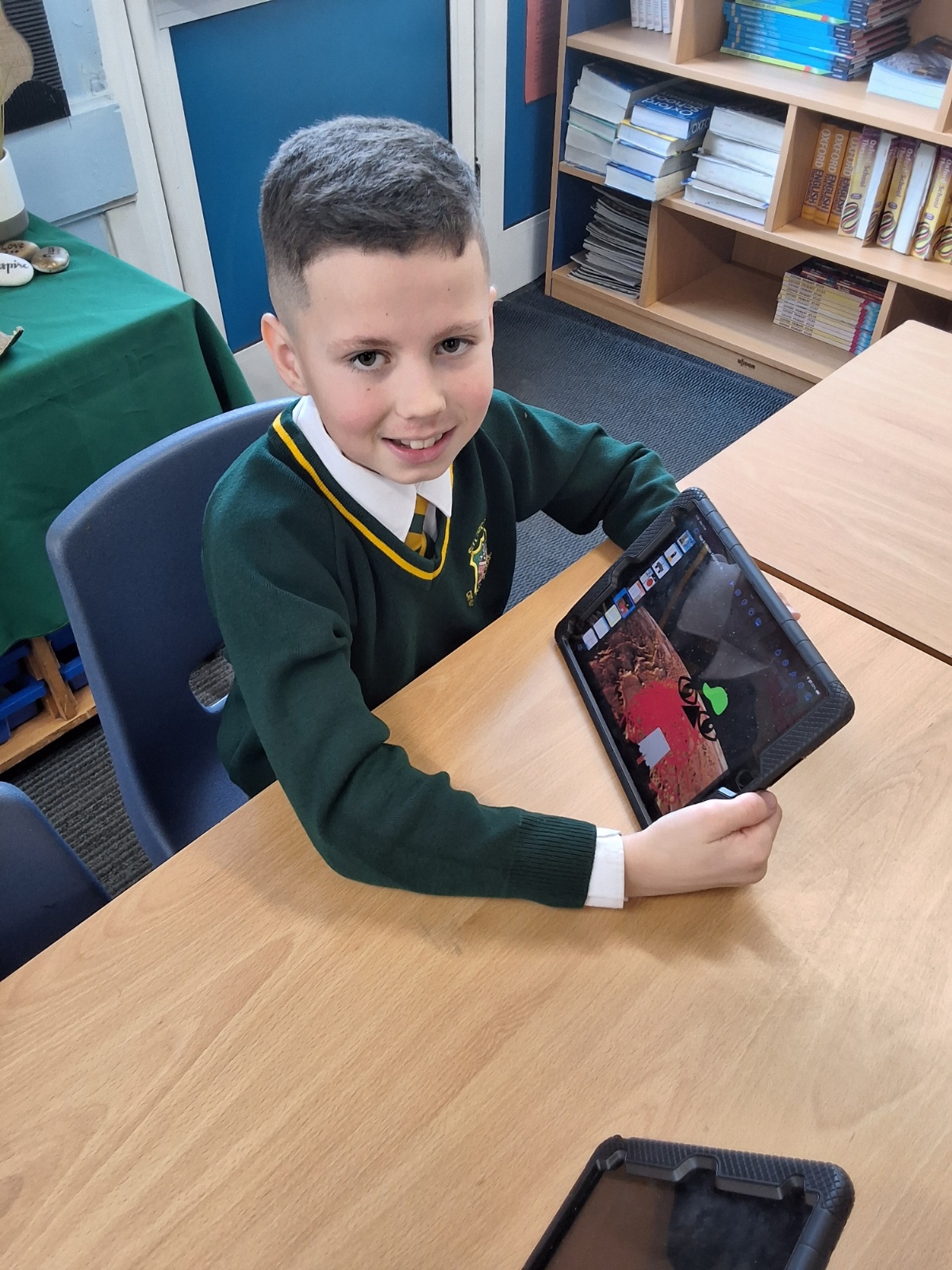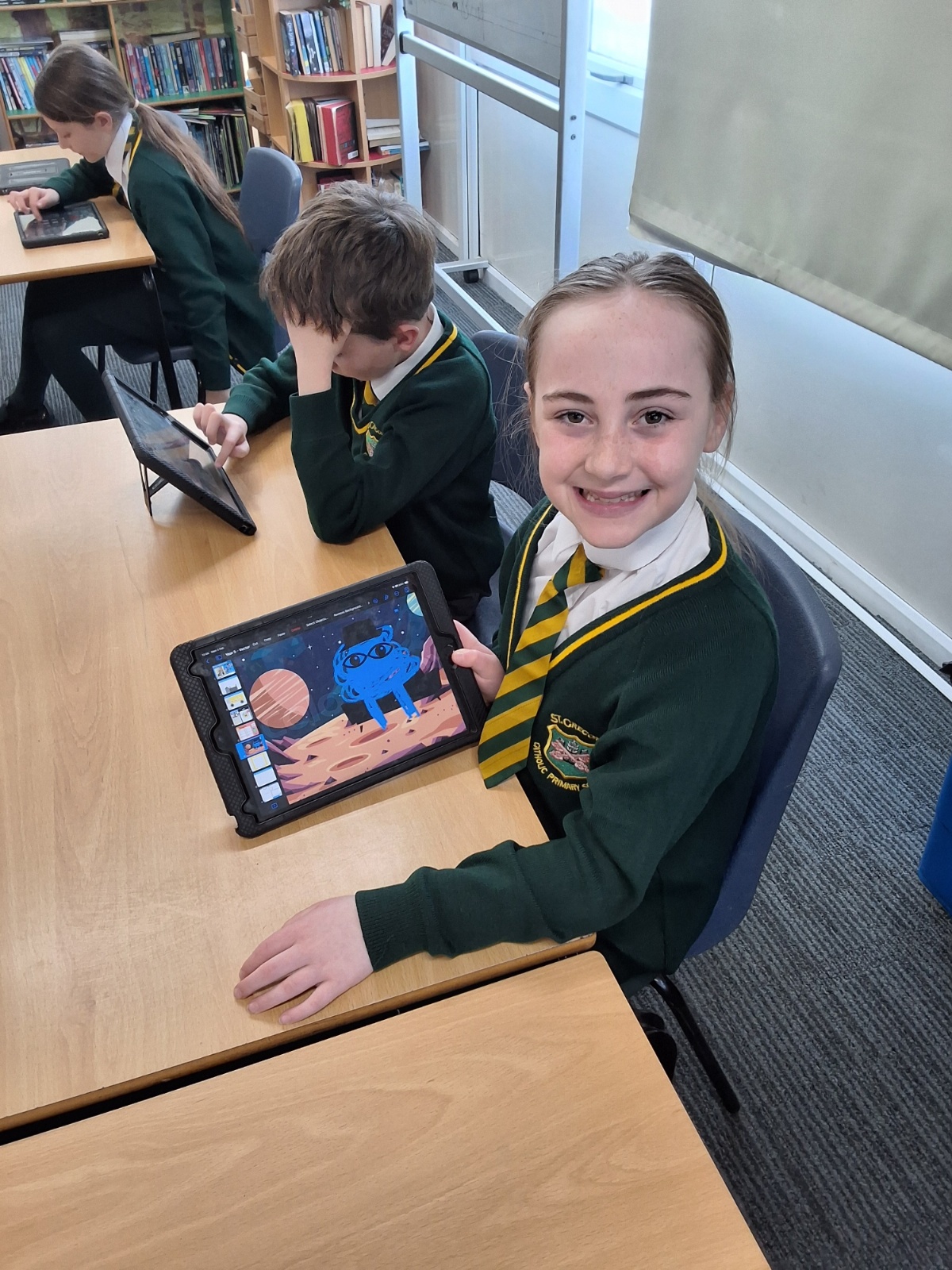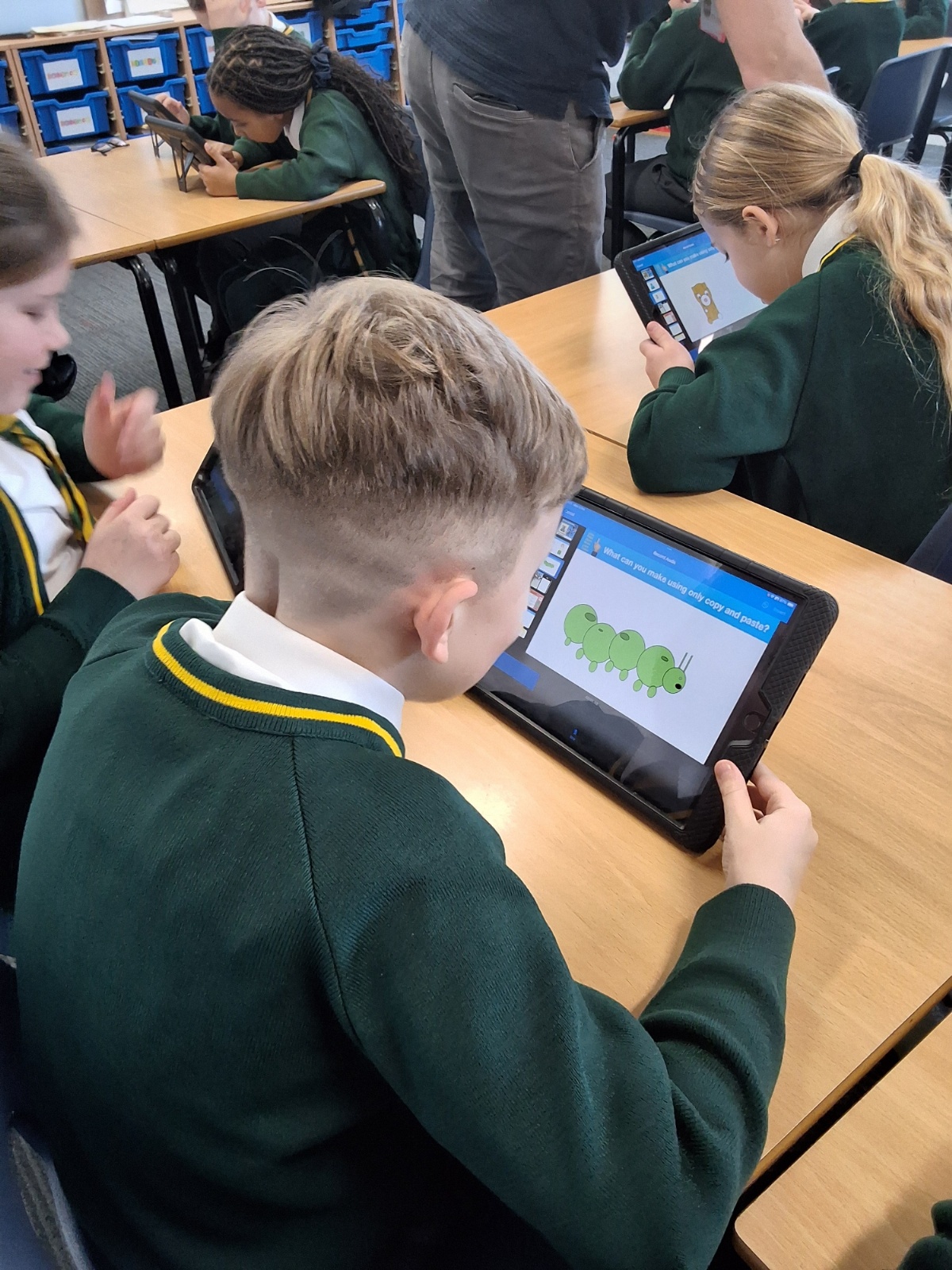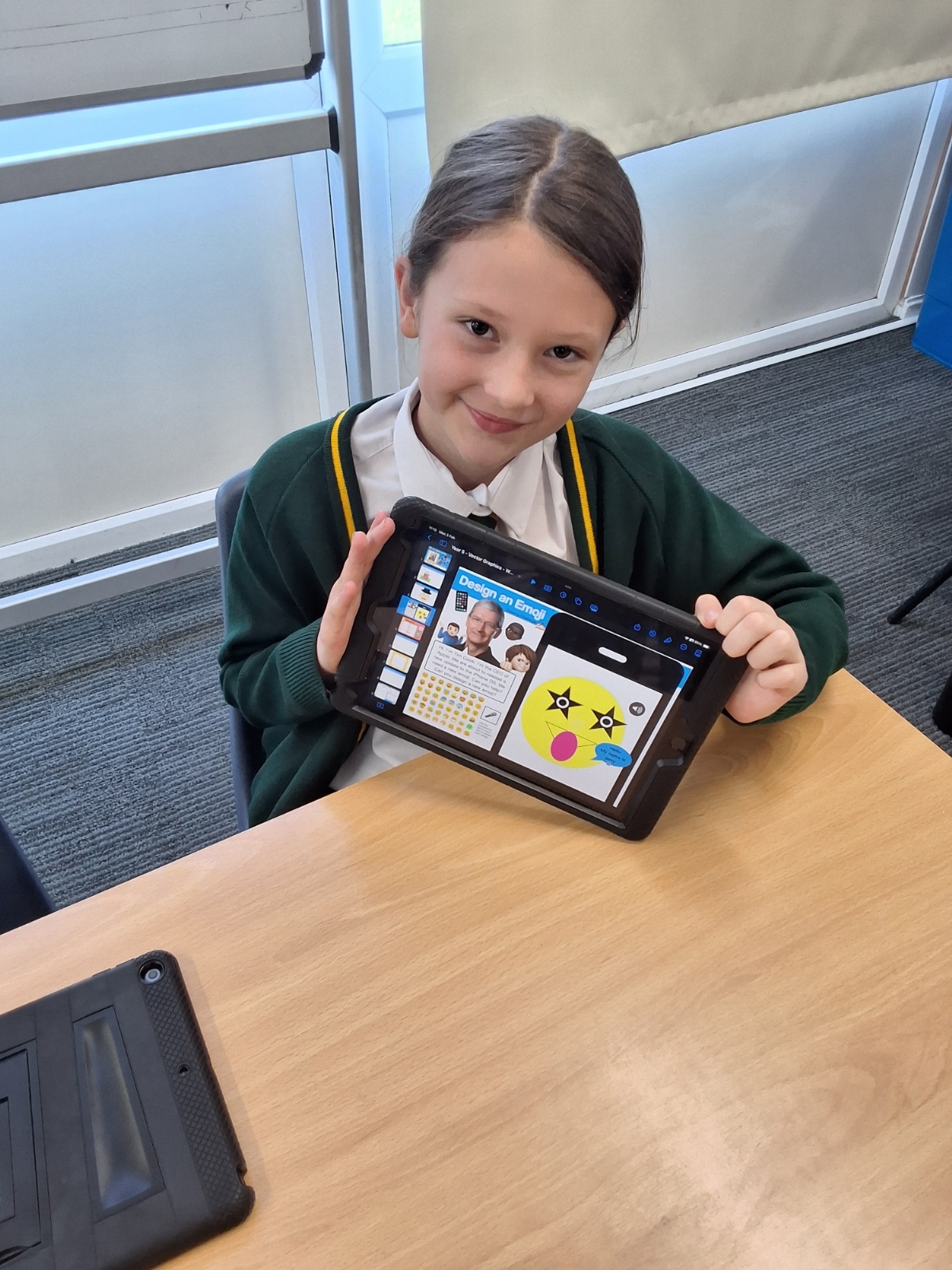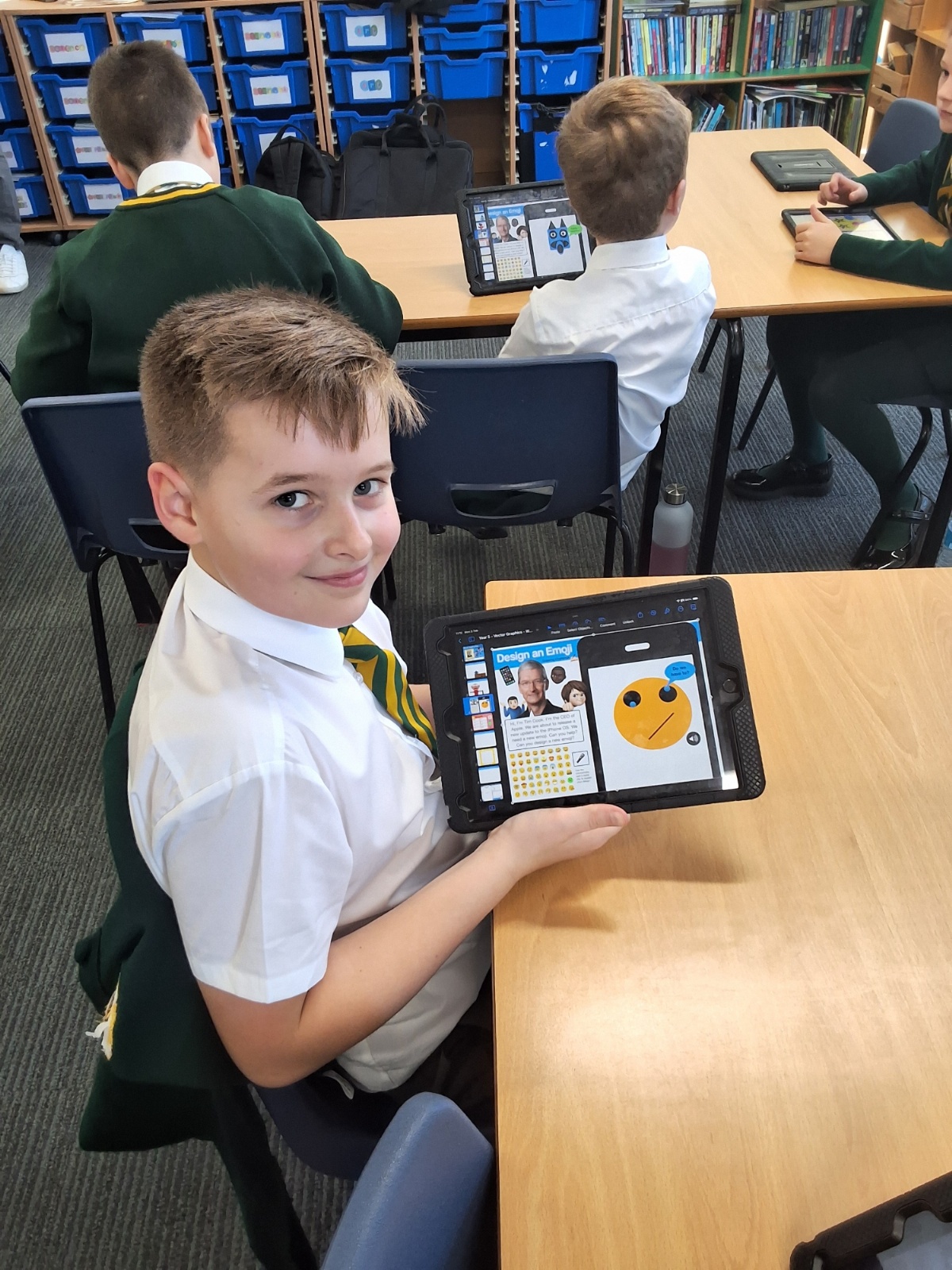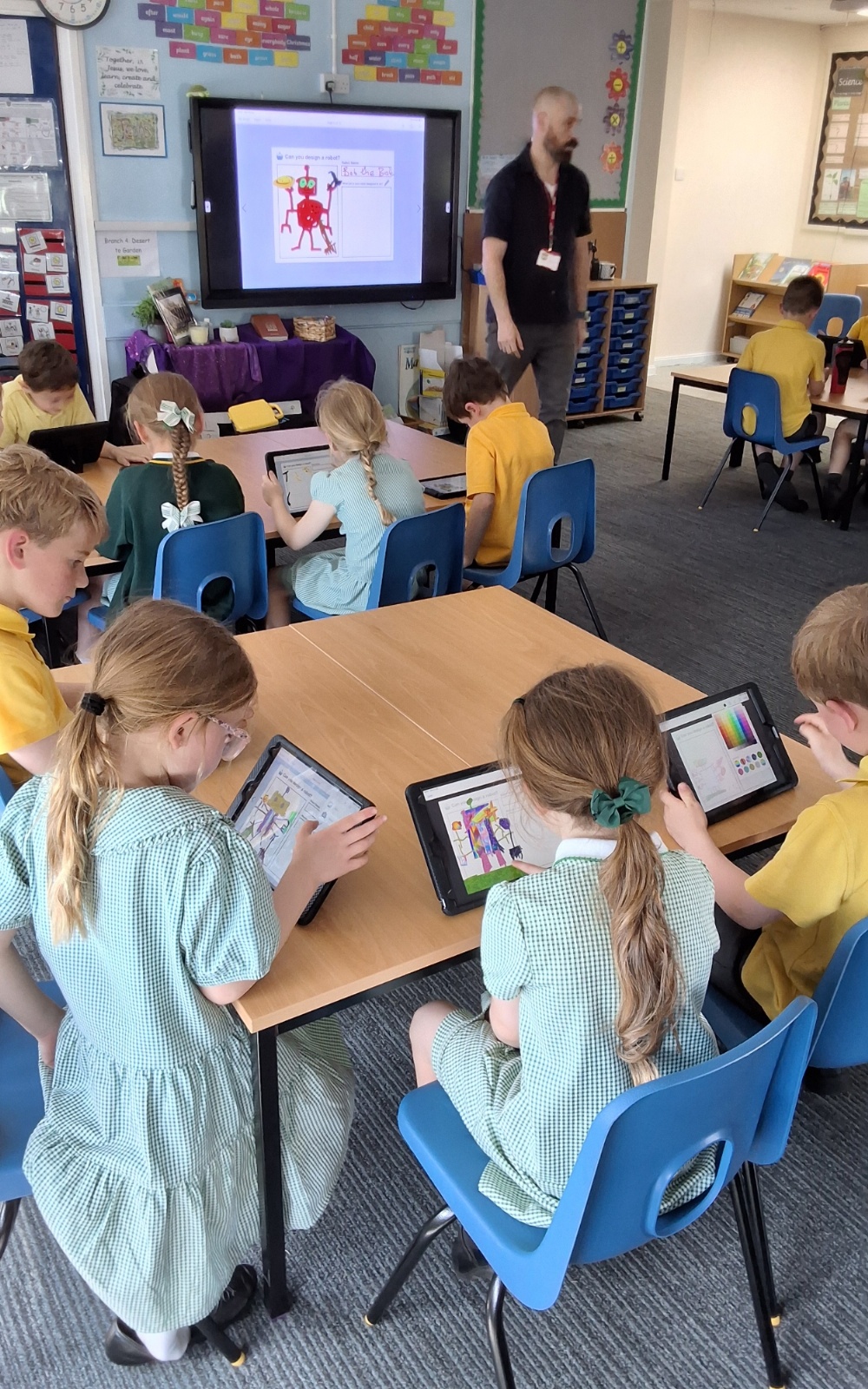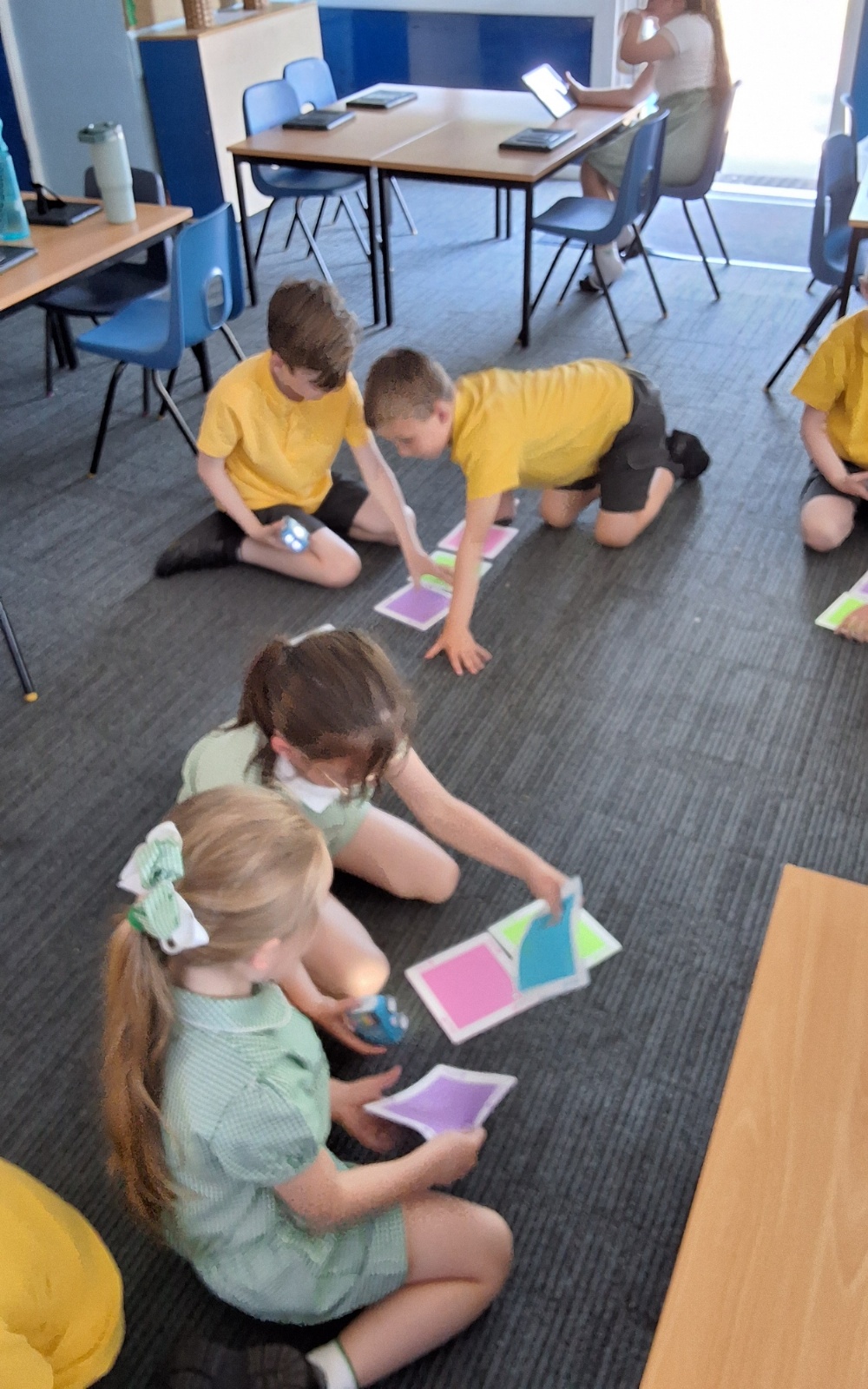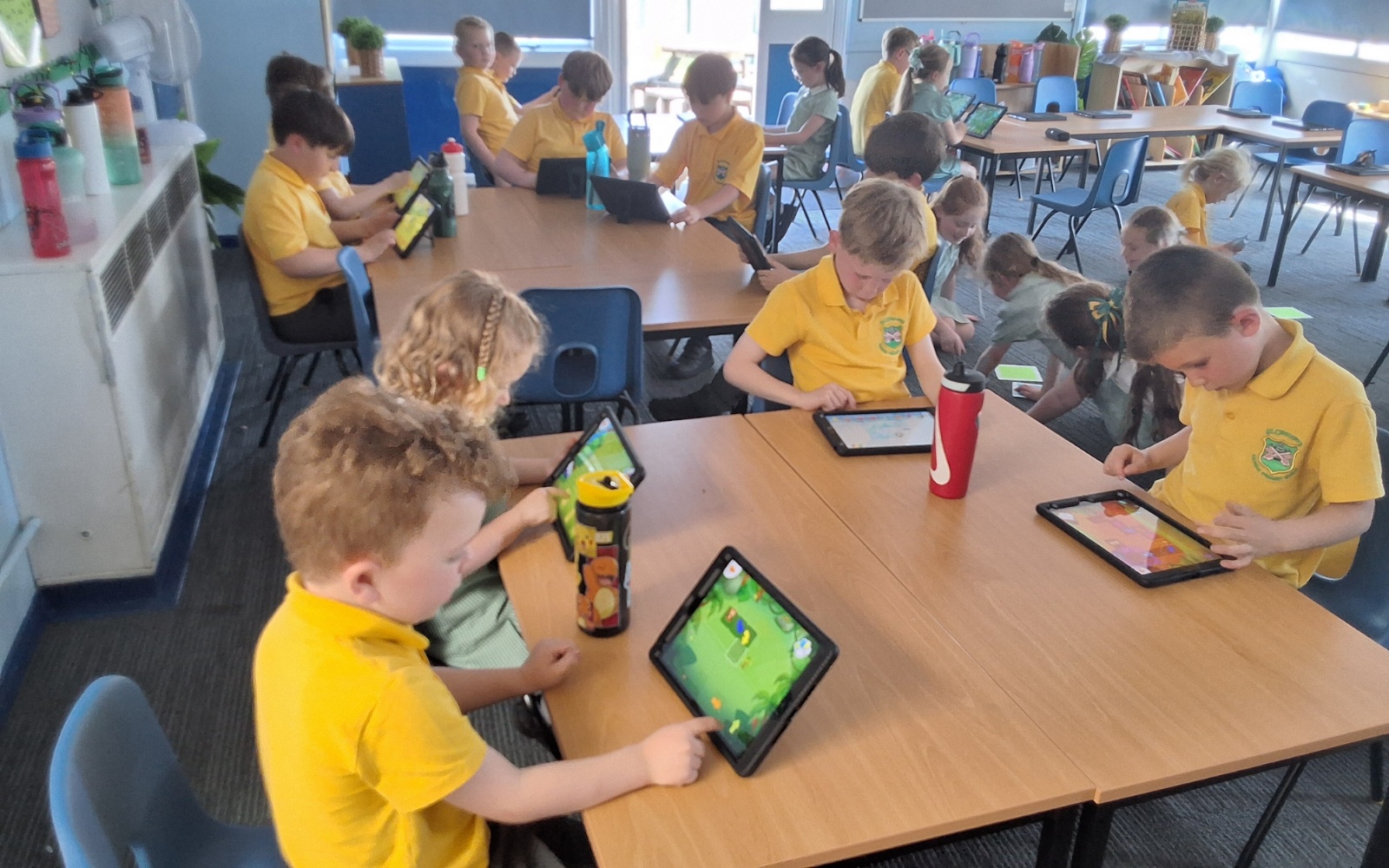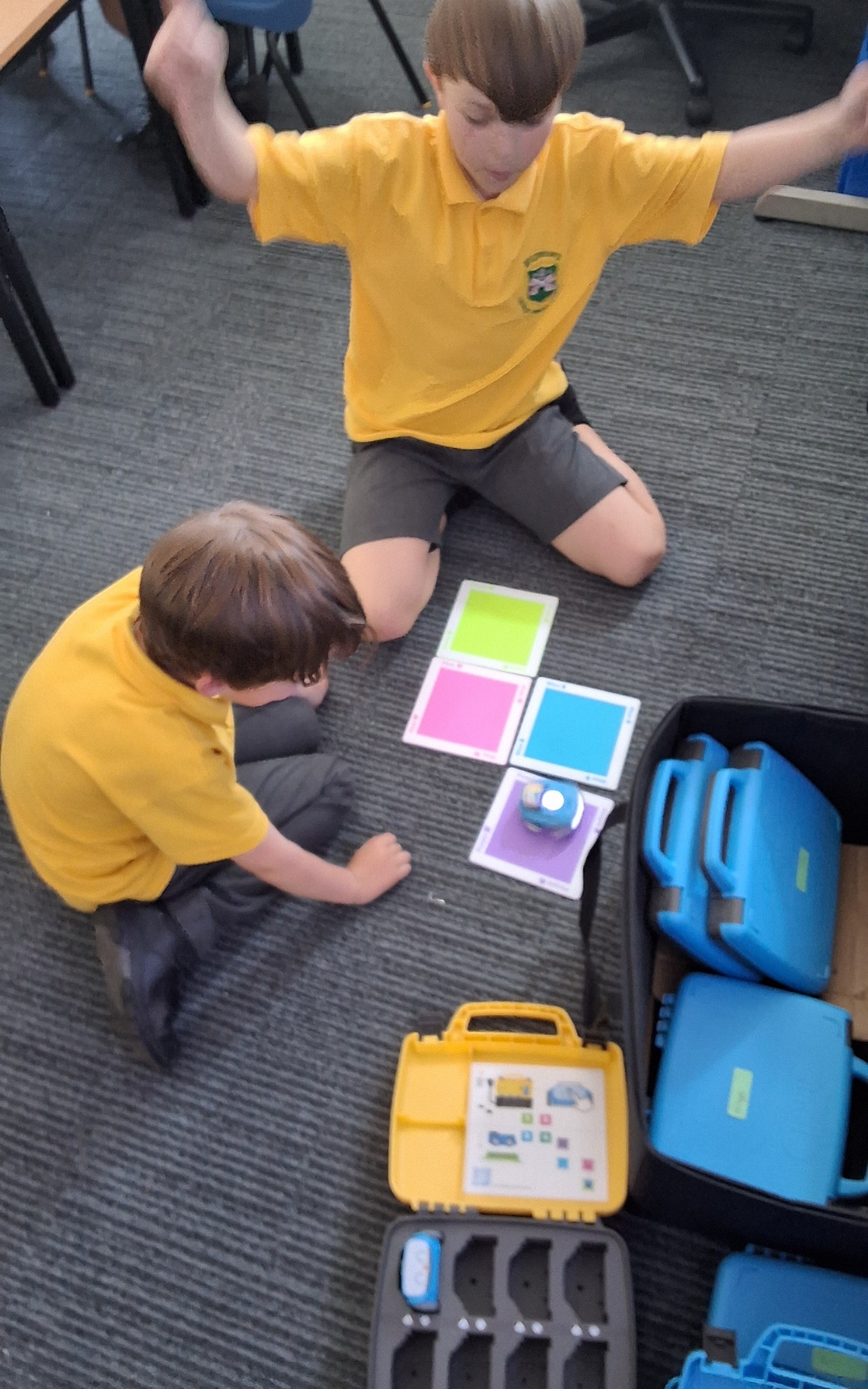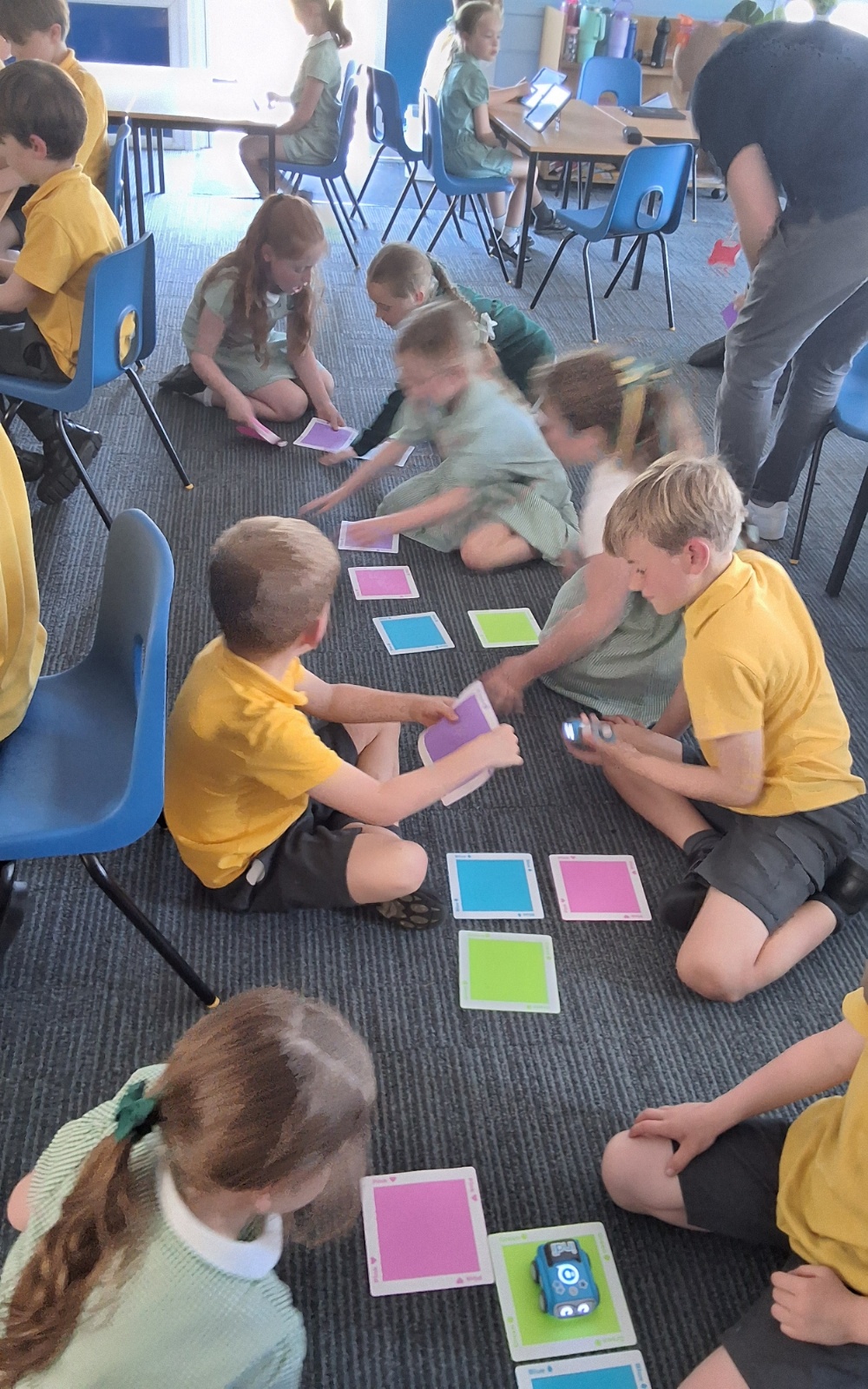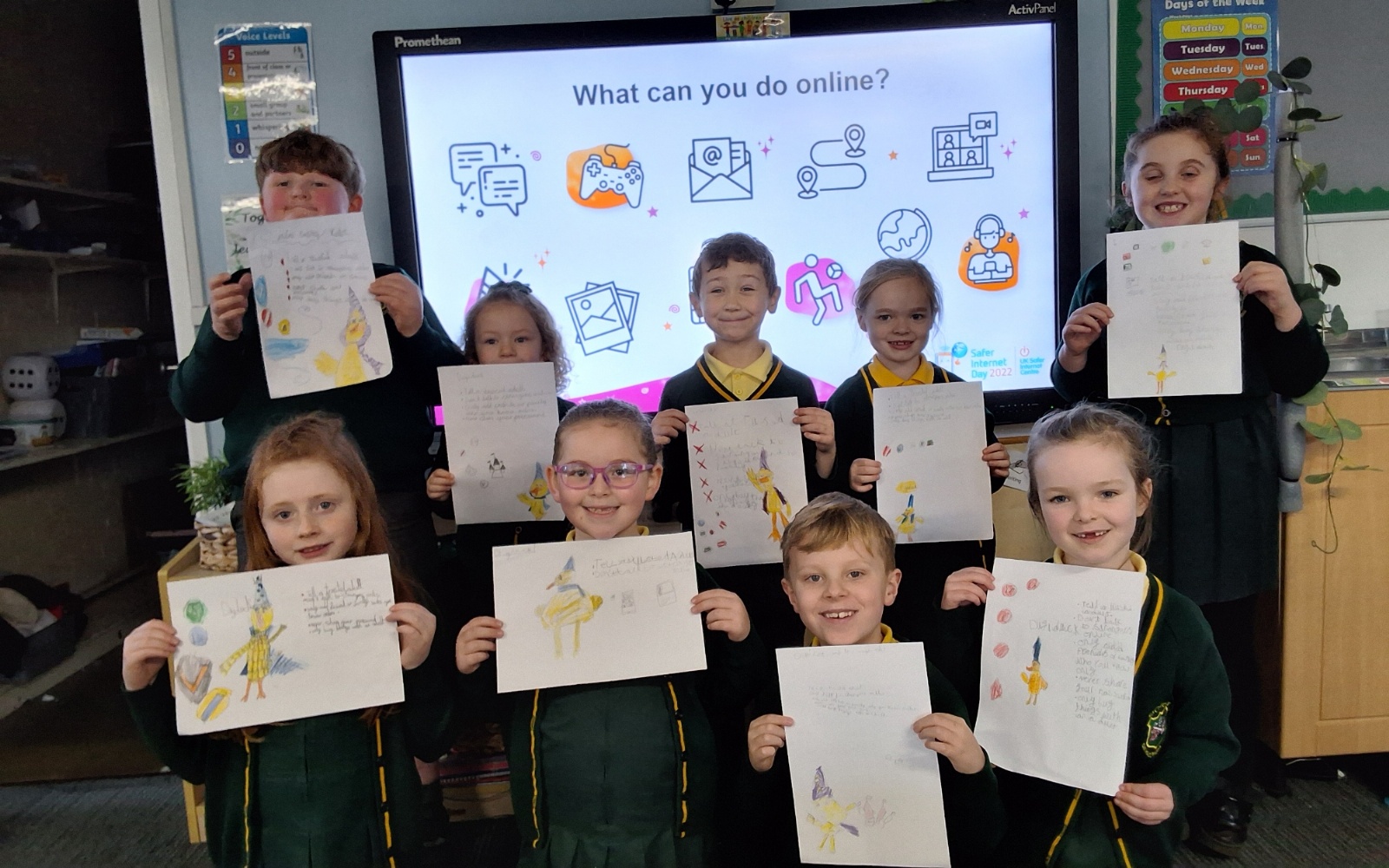Computing
Computing Curriculum Intent
All pupils at St. Gregory’s have the right to have rich, deep learning experiences that balance all the aspects of Computing. With technology playing such a significant role in society today, we believe ‘Computational thinking’ is a skill that children must be taught if they are to be able to participate, contribute and lead safely and effectively in this growing digital world. A high-quality computing education equips pupils to use creativity to understand and change the world. Computing has deep links with mathematics, science, and design and technology, and provides insights into both natural and artificial systems. At St. Gregory’s, the core of computing is Computer Science in which pupils are introduced to a wide range of technology, including laptops, iPads, tablet devices, programmable equipment and interactive whiteboards, allowing them to continually practice and improve the skills they learn. This ensures they become digitally literate, so that they are able to express themselves and develop their ideas through information and computer technology– at a level suitable for the future workplace and as active participants in a digital world.
We teach a curriculum that enables children to become effective users of technology who can:
- Understand and apply the essential principles and concepts of Computer Science, including logic, algorithms and data representation.
- Analyse problems in computational term, and have repeated practical experience of writing computer programs in order to solve such problems.
- Evaluate and apply information technology – with growing competence in analysis - to solve problems.
- Communicate ideas well by utilising appliances and devices throughout all areas of the curriculum.
Internet Safety
Internet, and all E-Safety, is of paramount importance at St. Gregory’s. We have an E-Safety Policy that provides guidance for teachers and children about how to use the internet safely. Every year group participates in lessons on e-safety and children understand how to stay safe when using technology; E-Safety learning is also interwoven into many other aspects of learning. You will find a wealth of further information on our dedicated E-Safety page on our school website.
Computing Curriculum Implementation
Our computing provision is rooted in computer science. Children learn key concepts such as the principles of information and computation, how digital systems operate, and how to apply this knowledge through programming and problem-solving tasks. As their understanding grows, pupils learn to use information technology to design programs, create digital content, and develop systems across a range of contexts.
Digital literacy is central to our approach, ensuring that pupils can use technology confidently and safely, express their ideas clearly, and adapt their knowledge to real-world applications. Online safety is a key focus throughout the curriculum.
To support this, every child in Key Stage 2 has access to their own Chromebook, which is used both in computing lessons and across other subjects to enhance learning opportunities and develop digital fluency.
In line with the National Curriculum, our aims at St Gregory's are to:
-
Ensure all pupils access their full computing entitlement.
-
Develop each child’s computing capability, including skills, knowledge, and understanding.
-
Offer a coherent and progressive computing experience throughout their time at school.
-
Encourage pupils to apply their computing skills meaningfully across the wider curriculum.
-
Promote confidence, curiosity, and enjoyment in using digital technology.
-
Foster an awareness of the impact of computing in modern society, including important issues such as online safety, data privacy, and digital responsibility.
-
Empower pupils to use technology to support and enhance their classwork and independent learning.
-
Strengthen communication between school and families through digital tools and platforms.
-
Provide ongoing support and training for staff to stay current with technological developments and ensure that computing teaching remains relevant, engaging, and inclusive for all learners.

